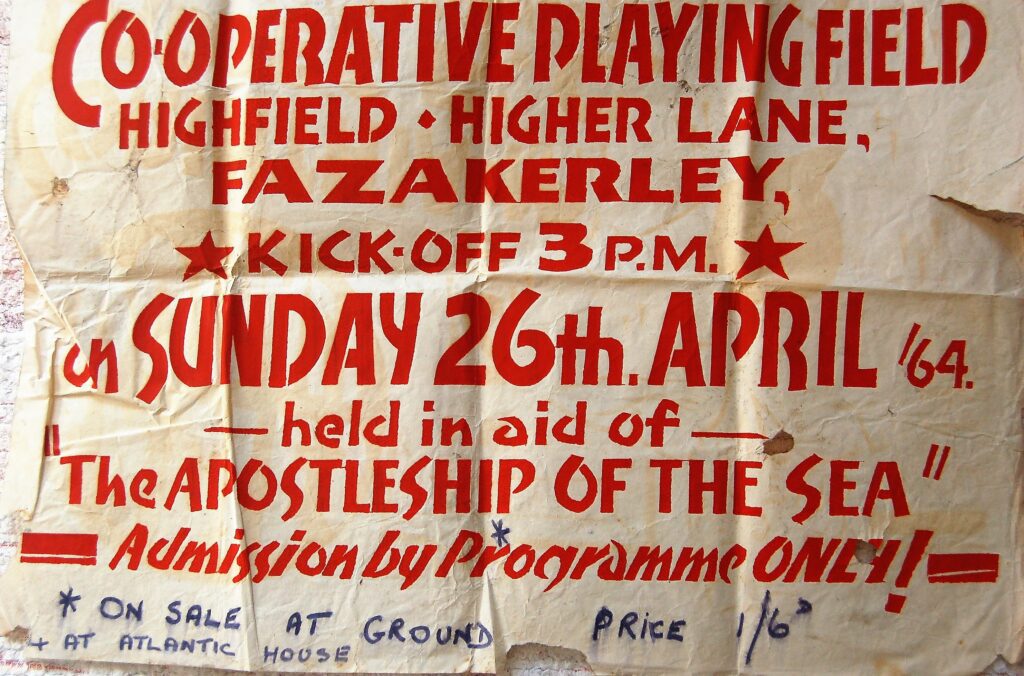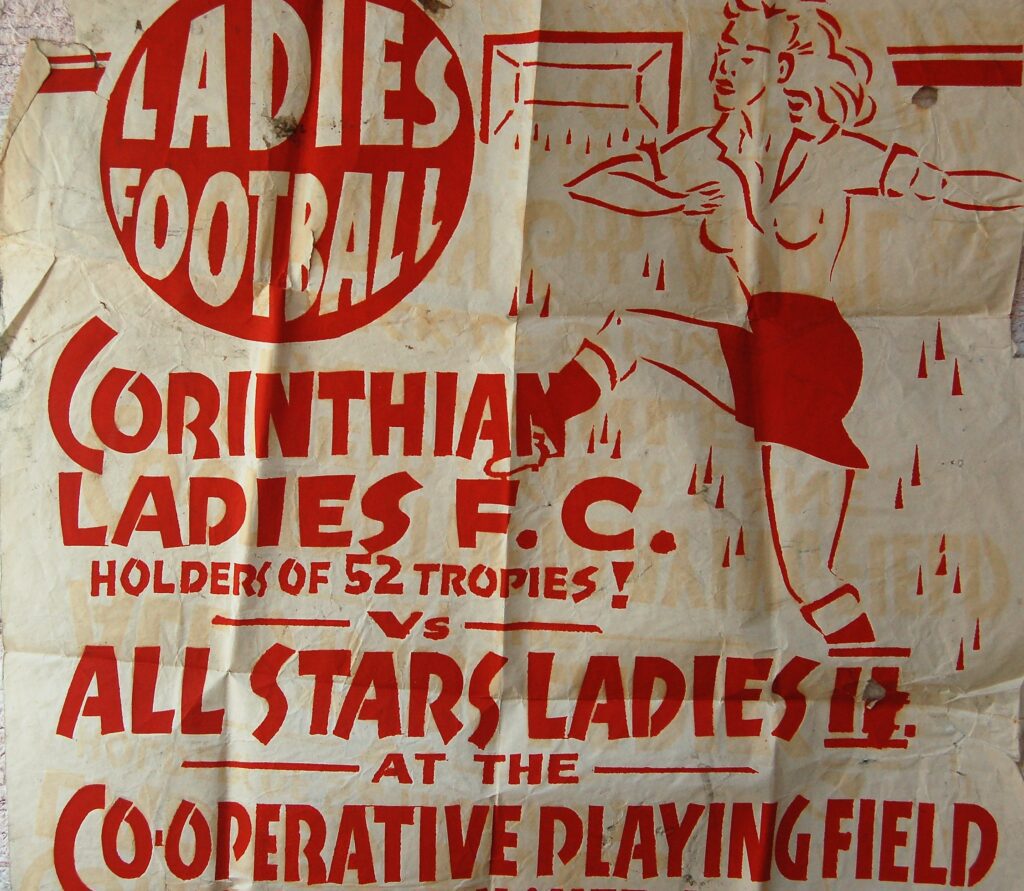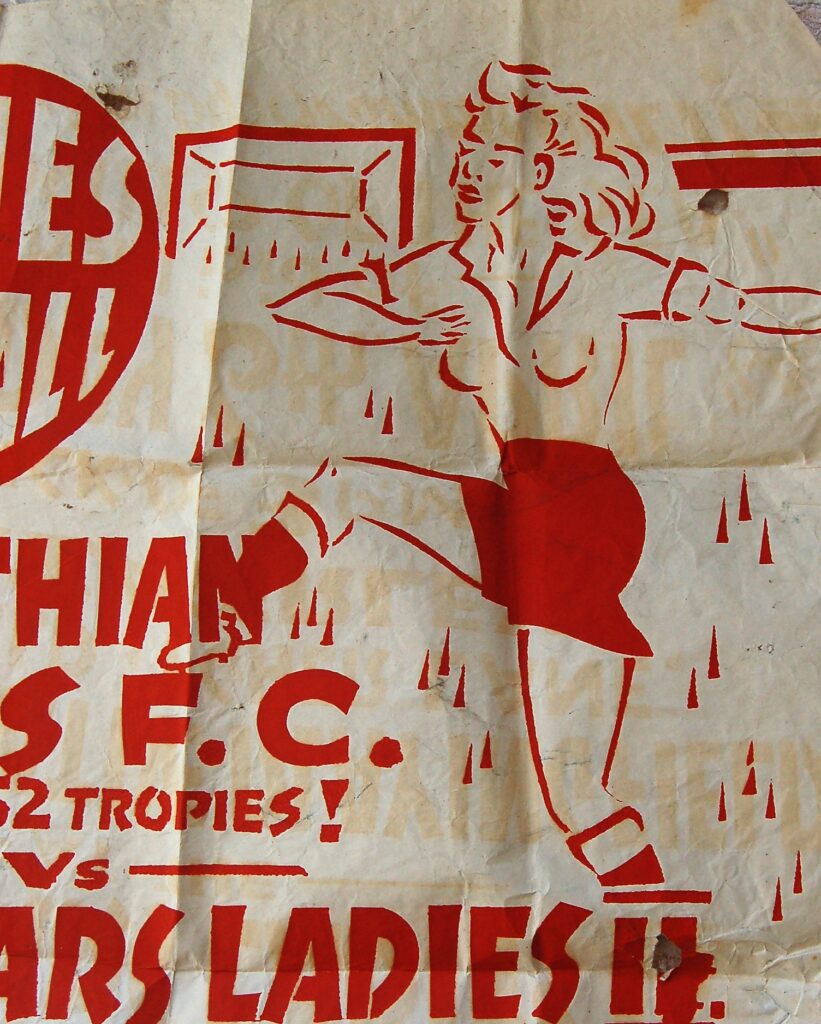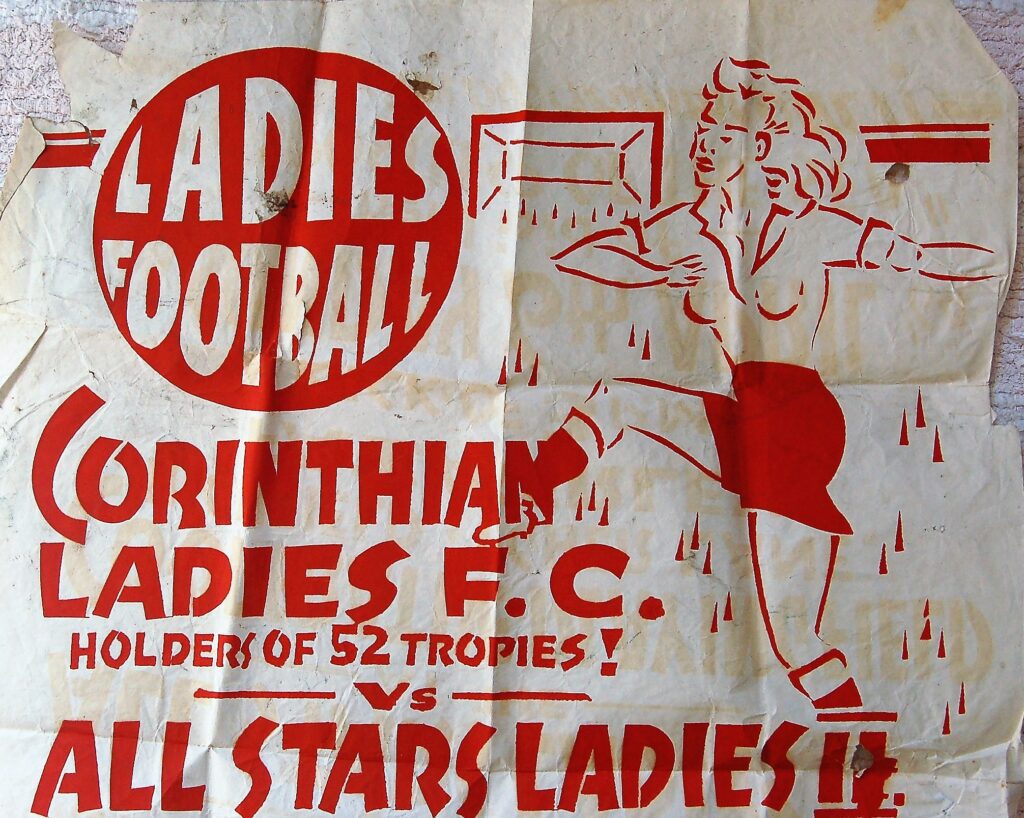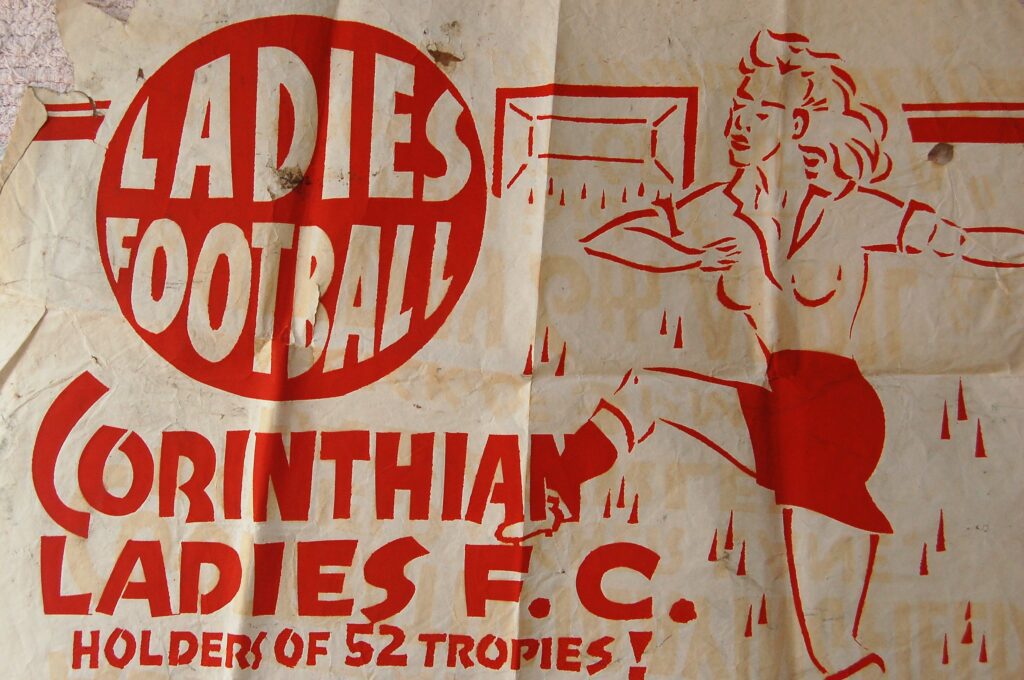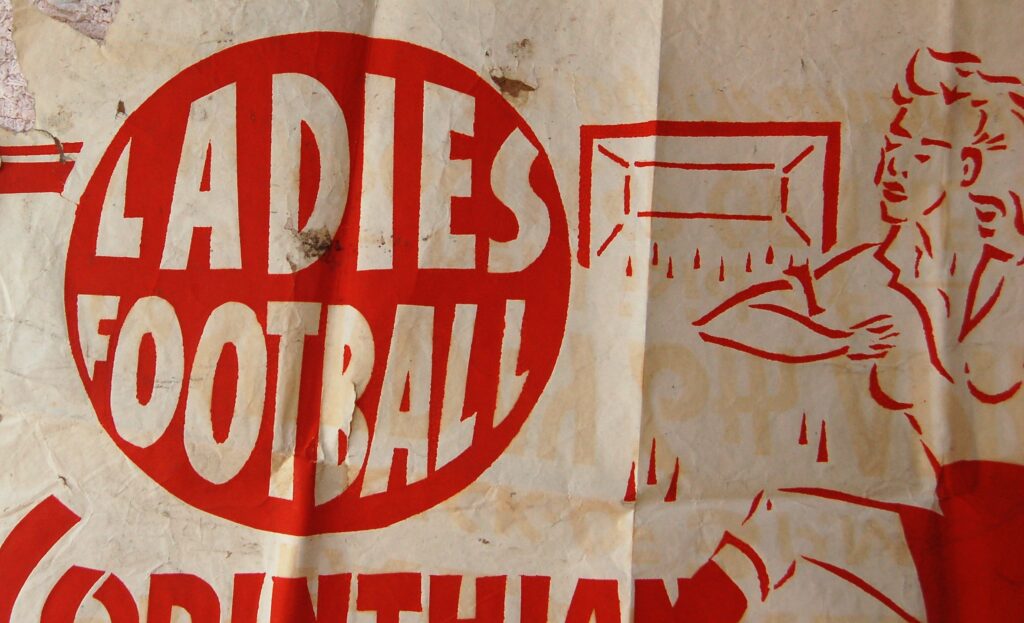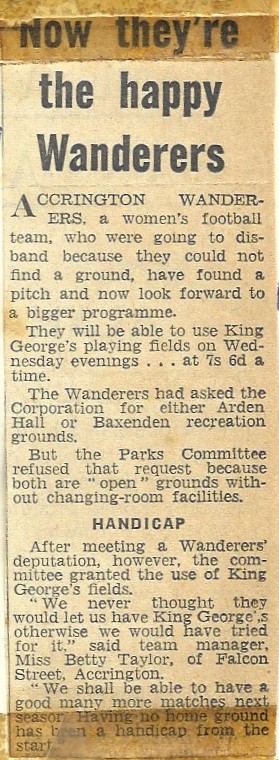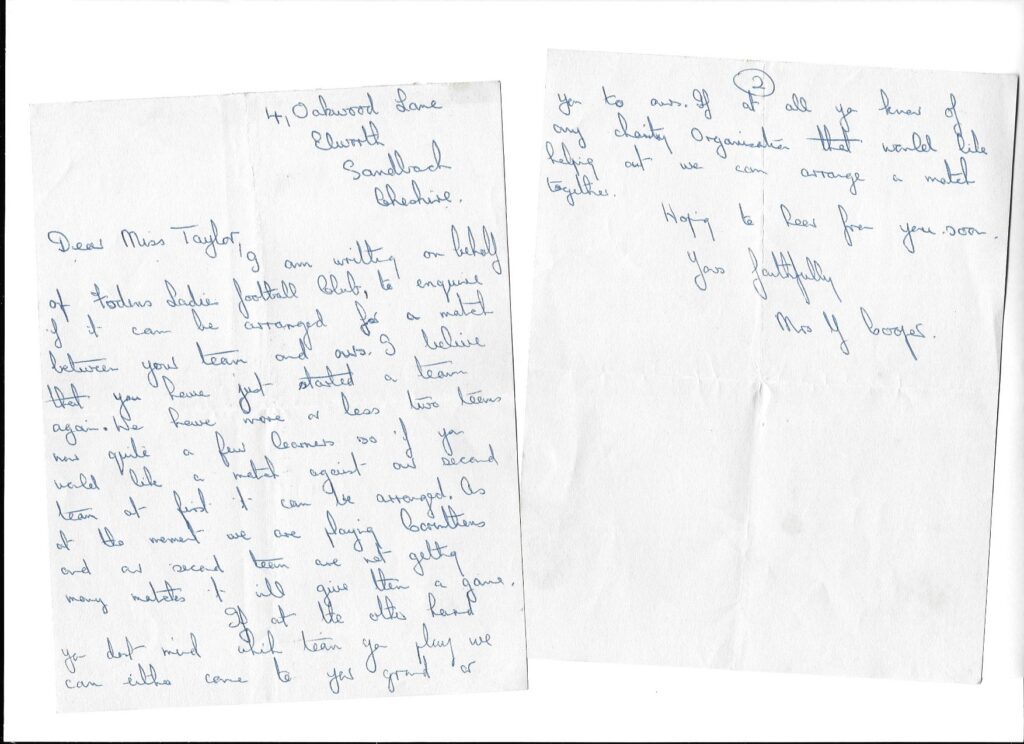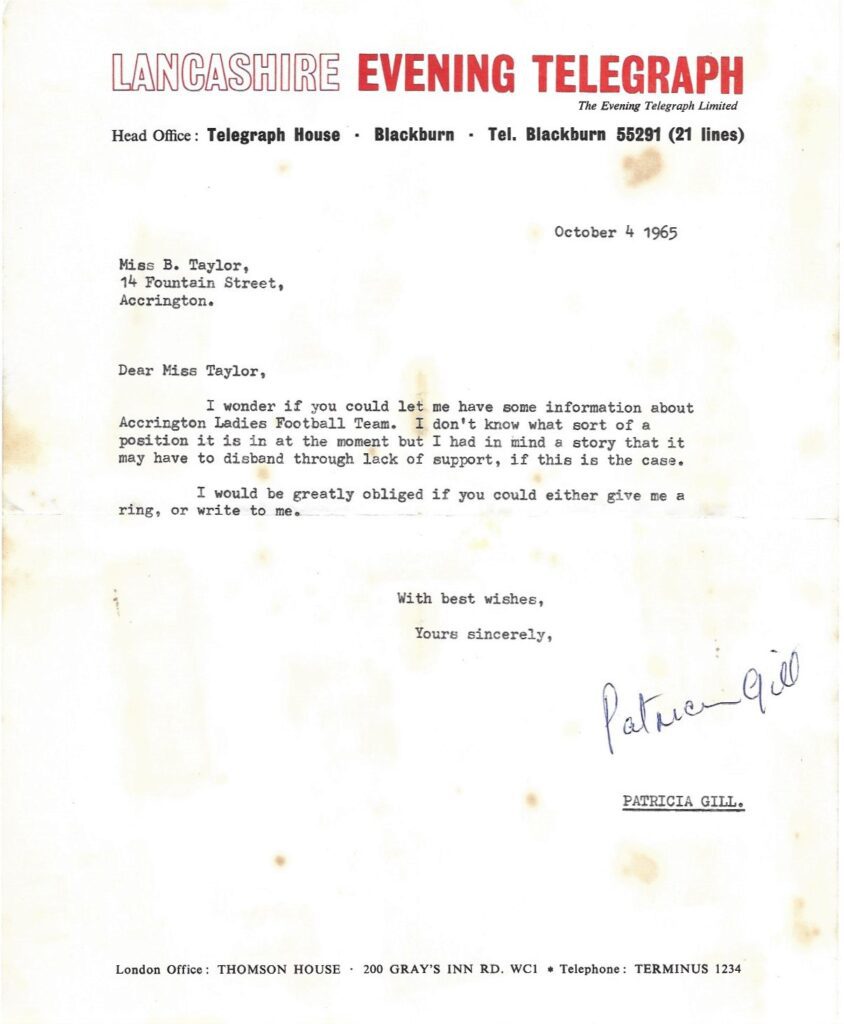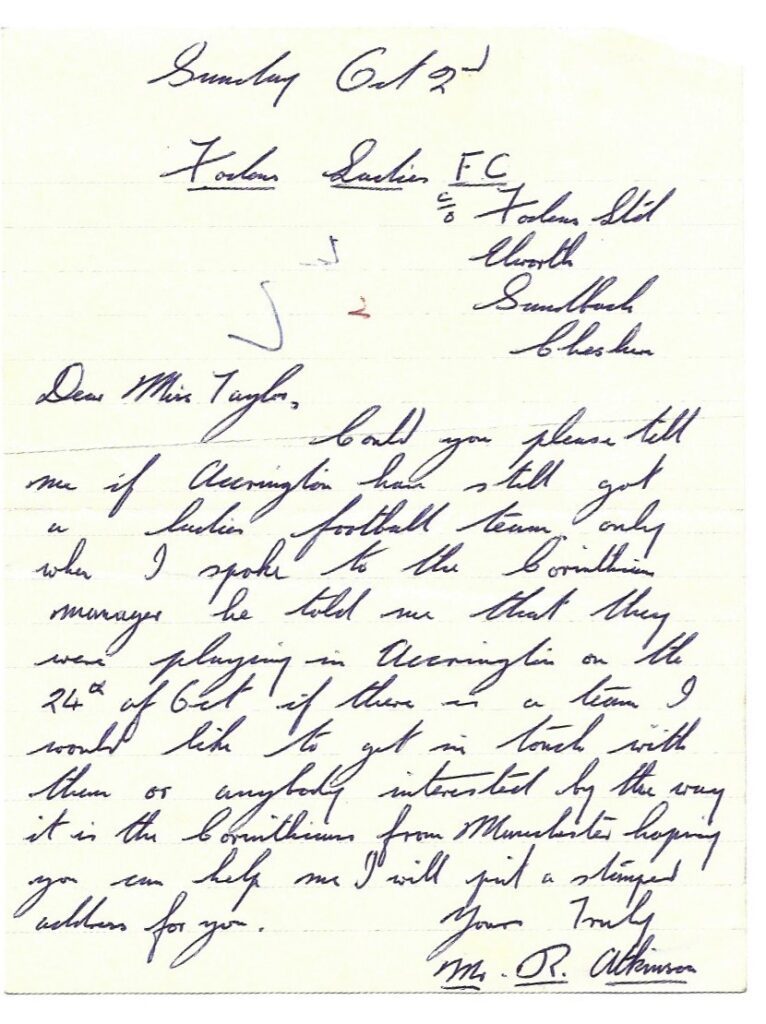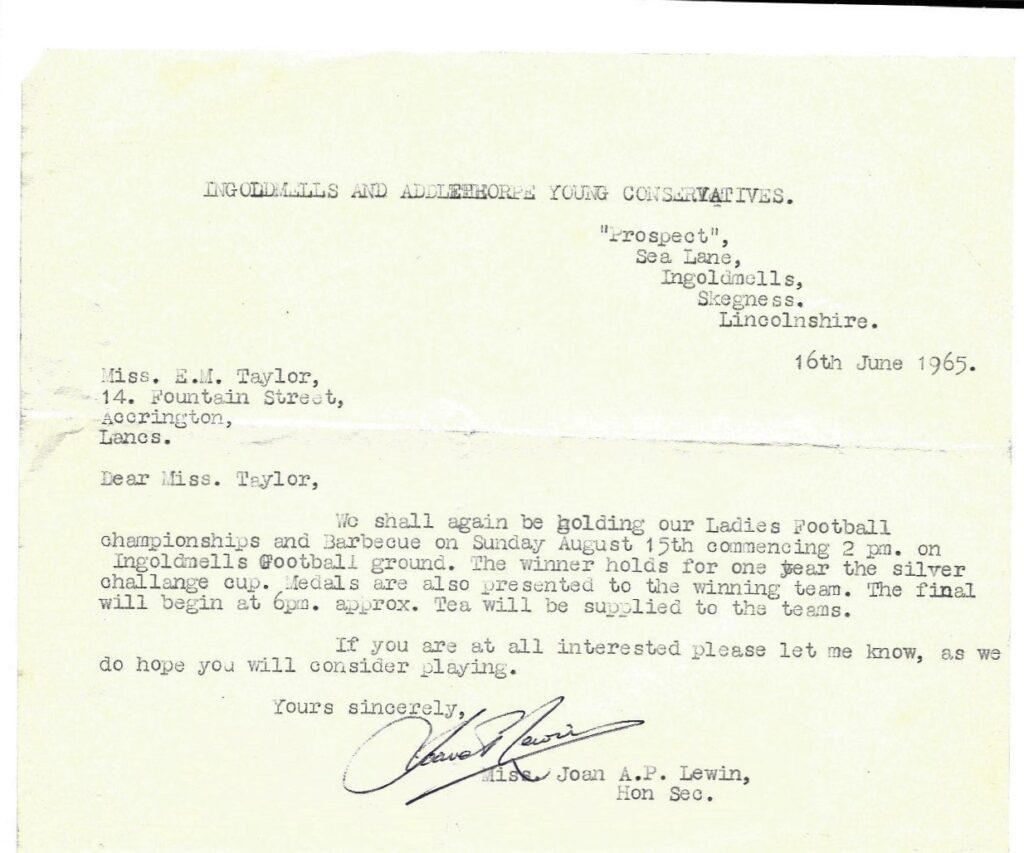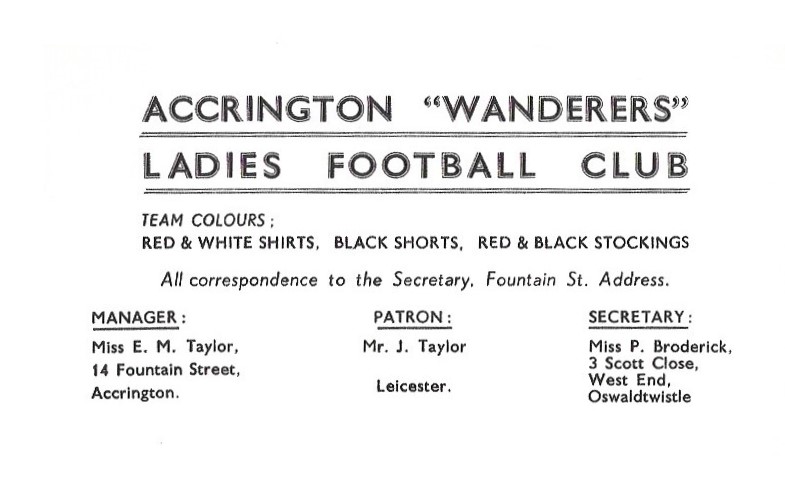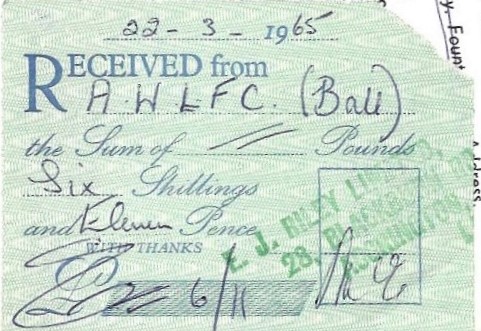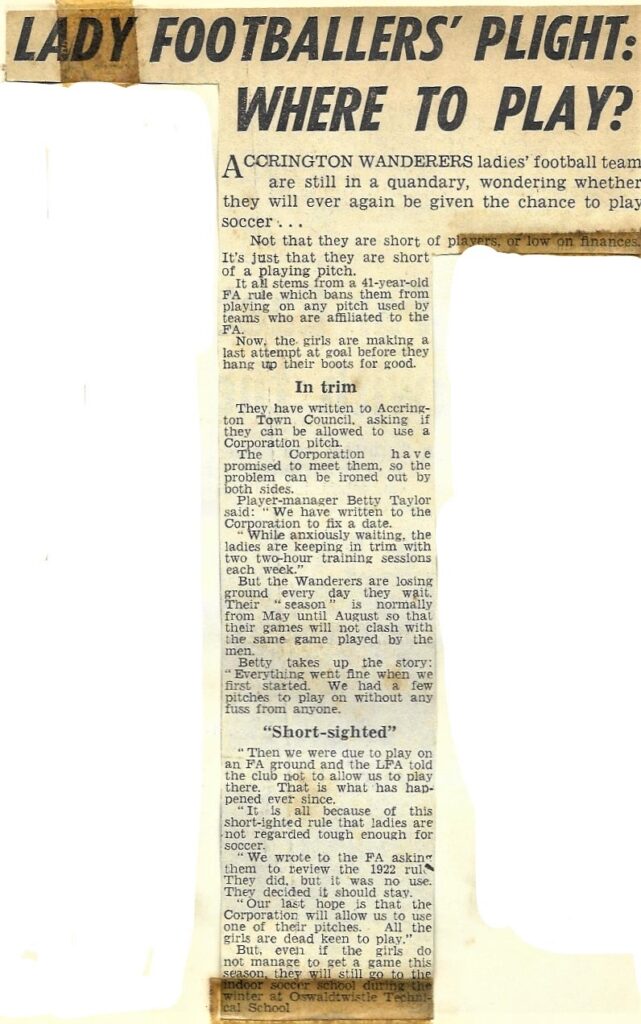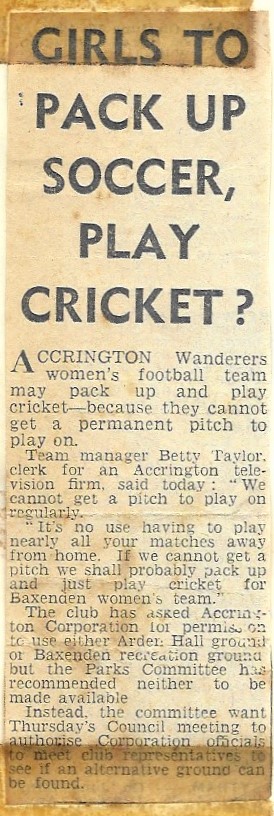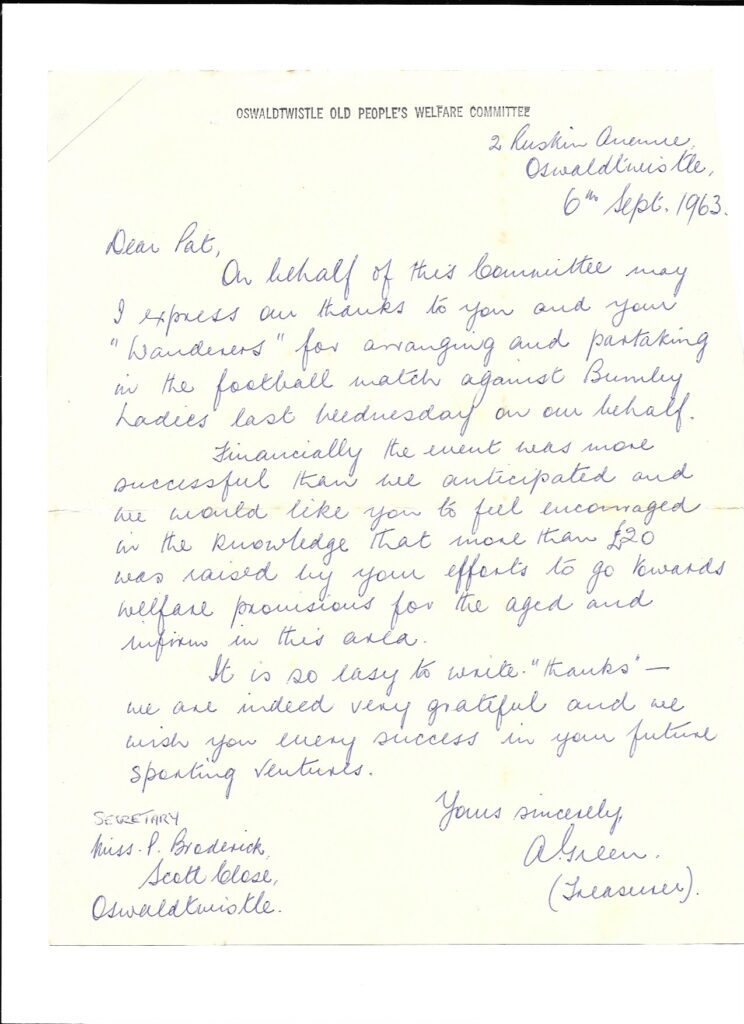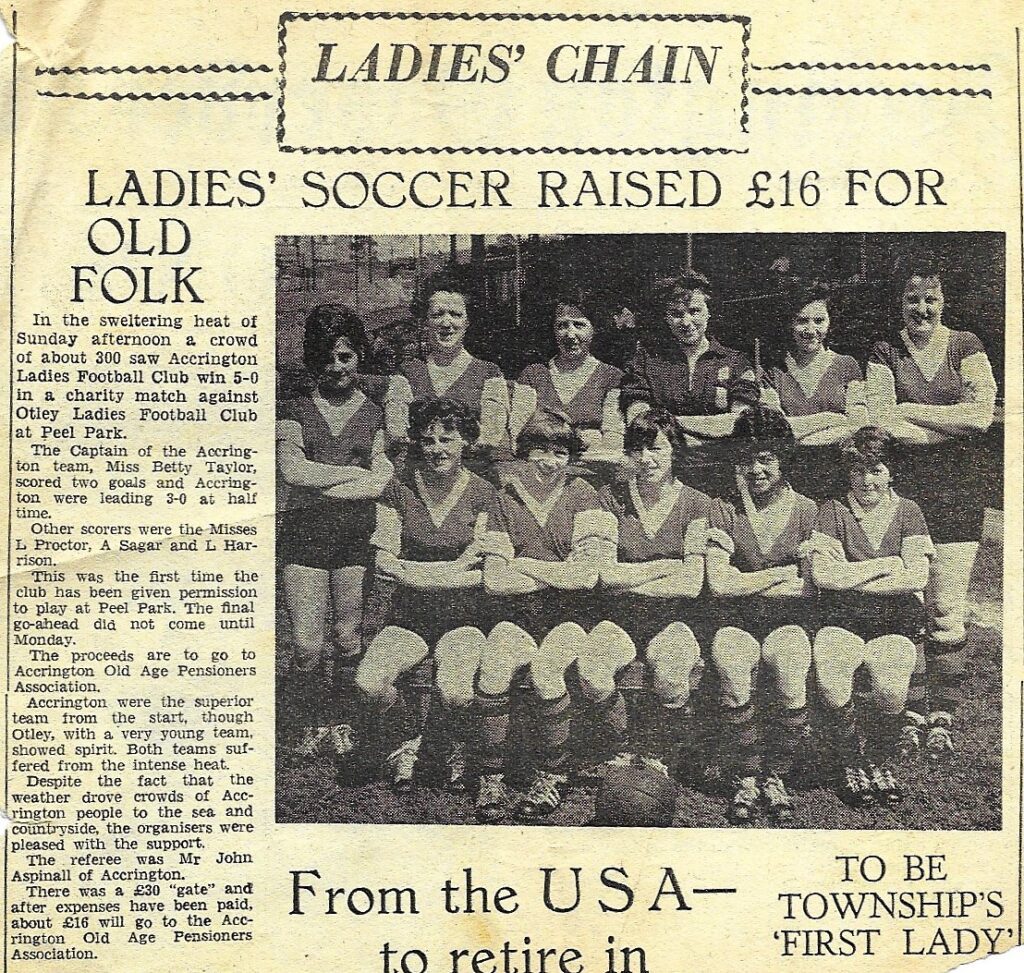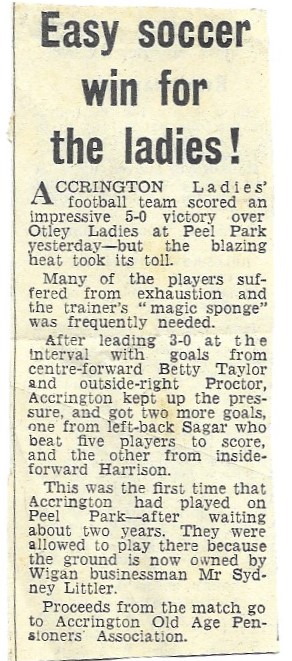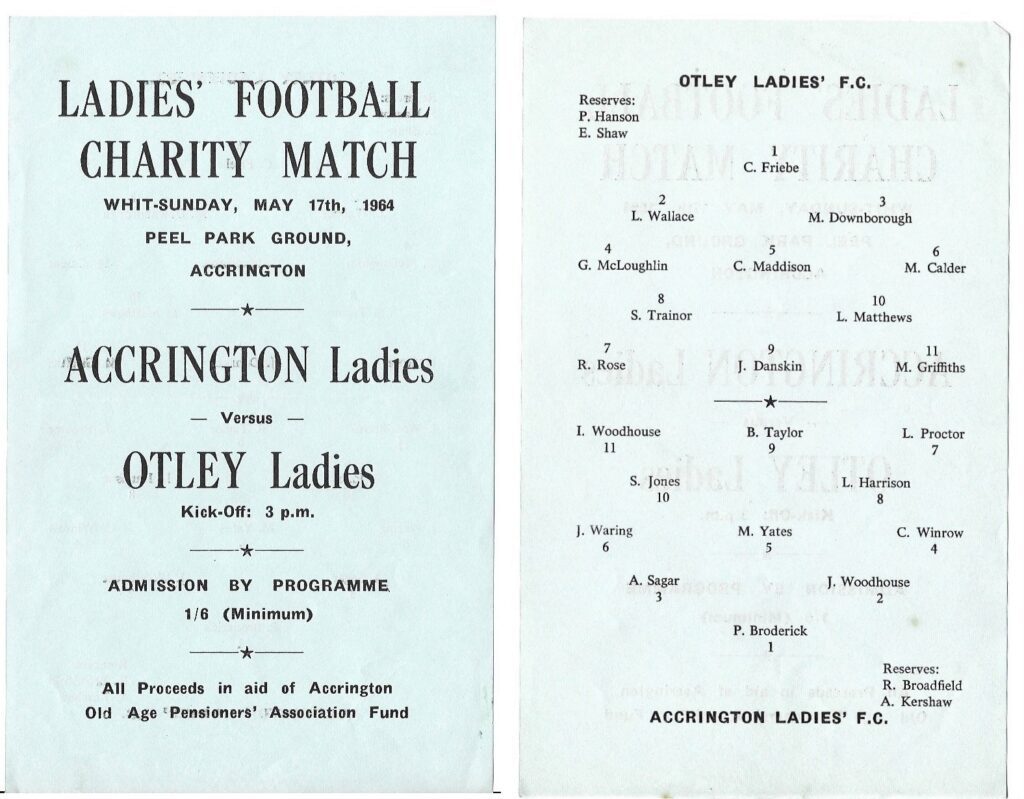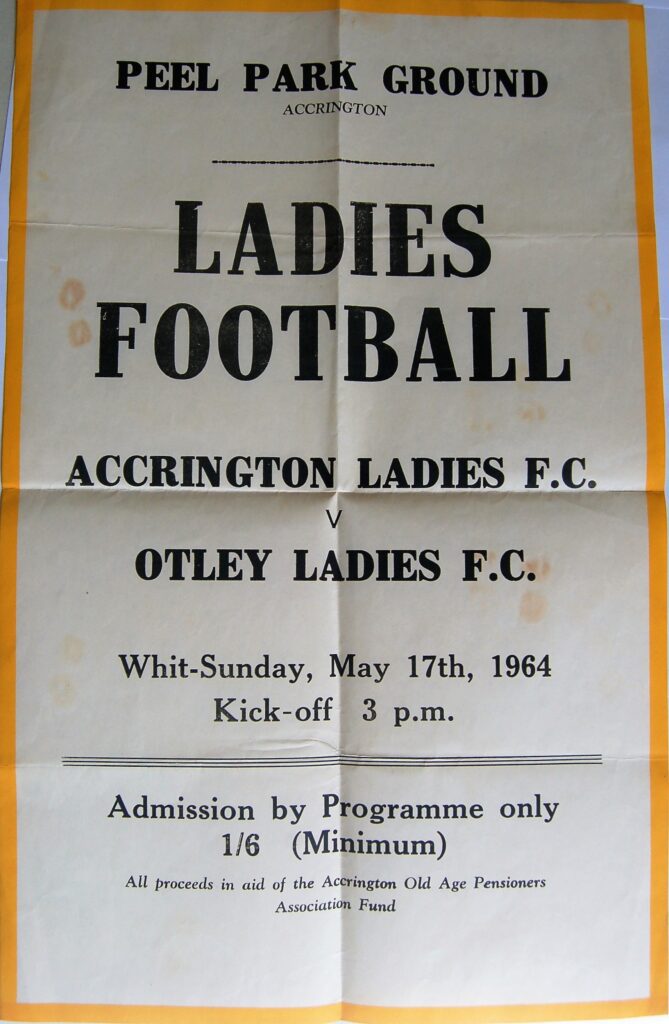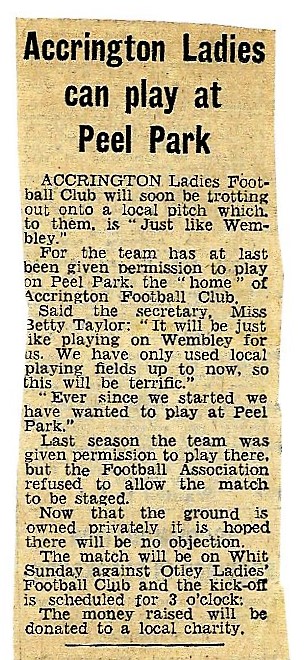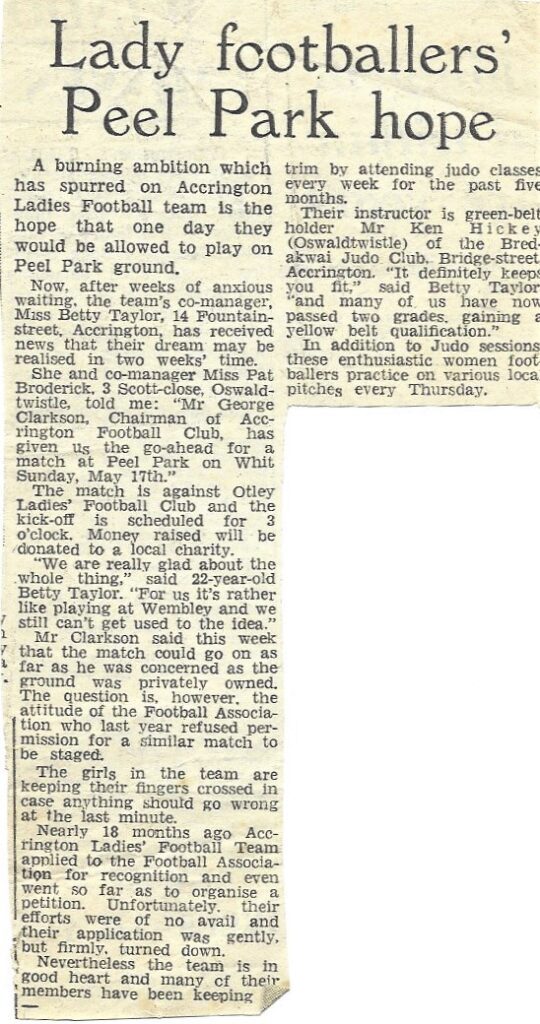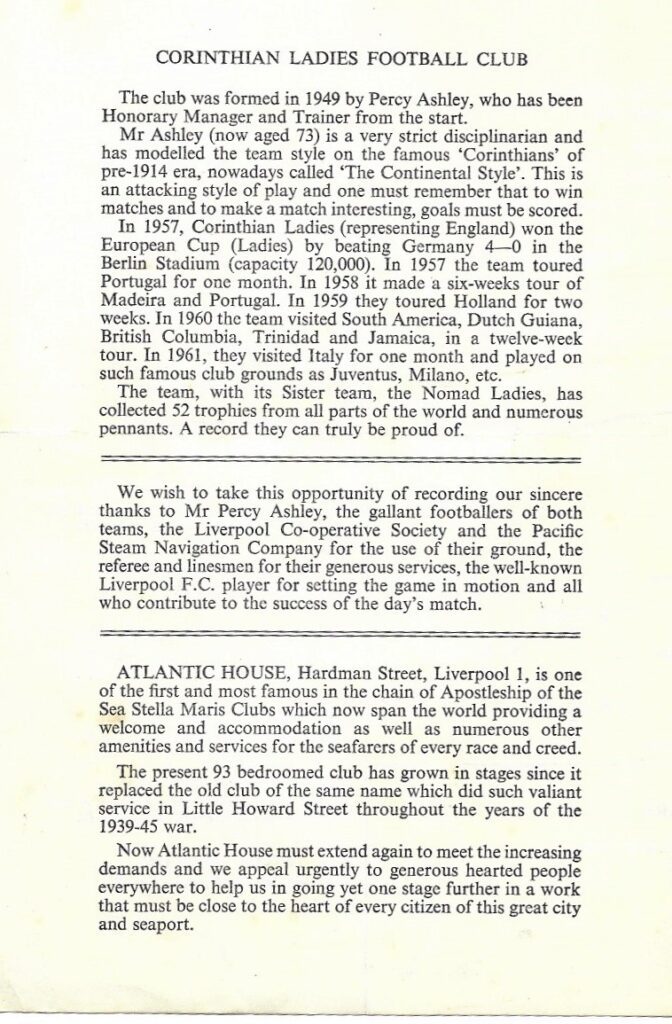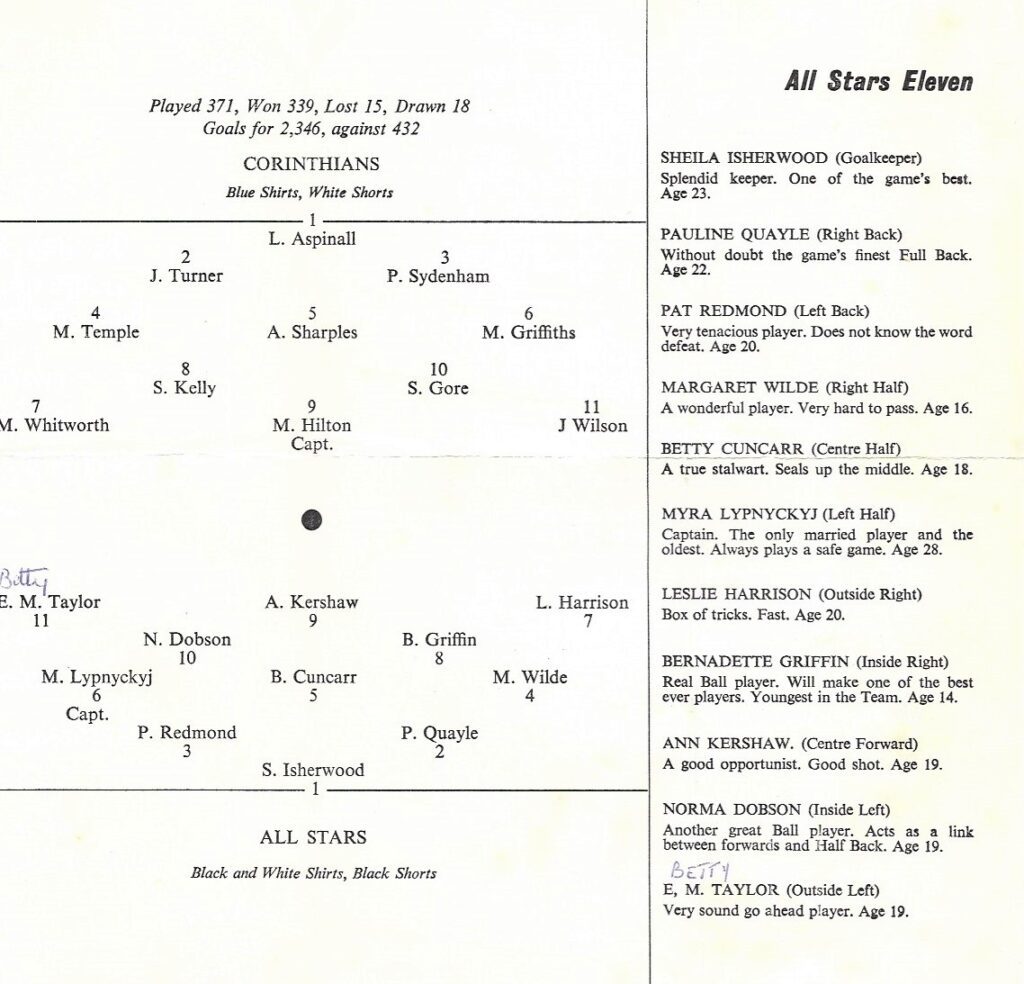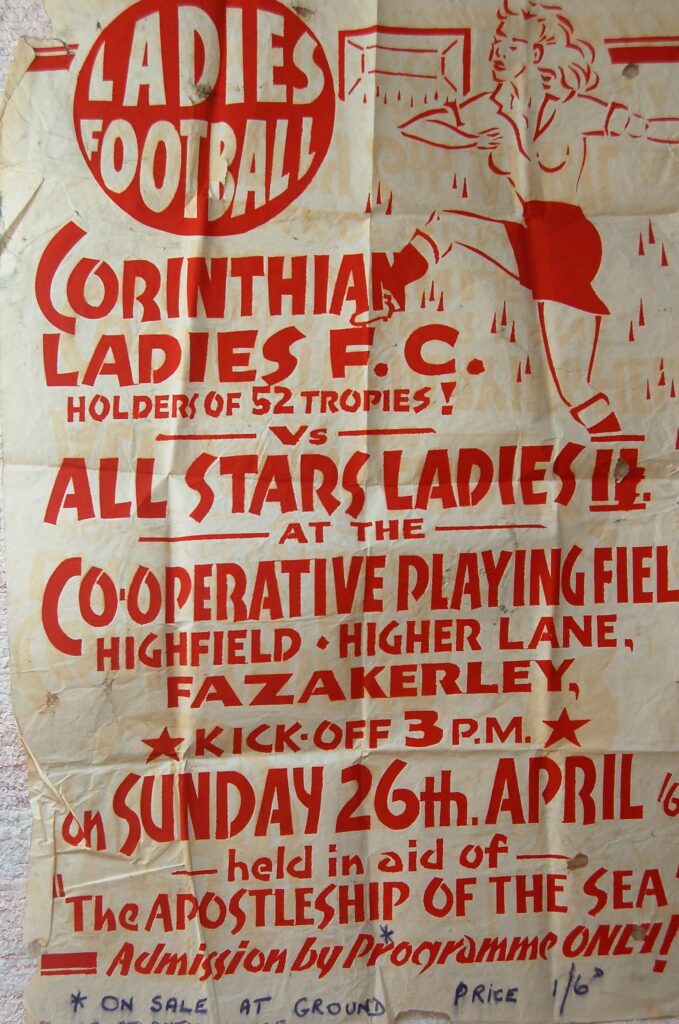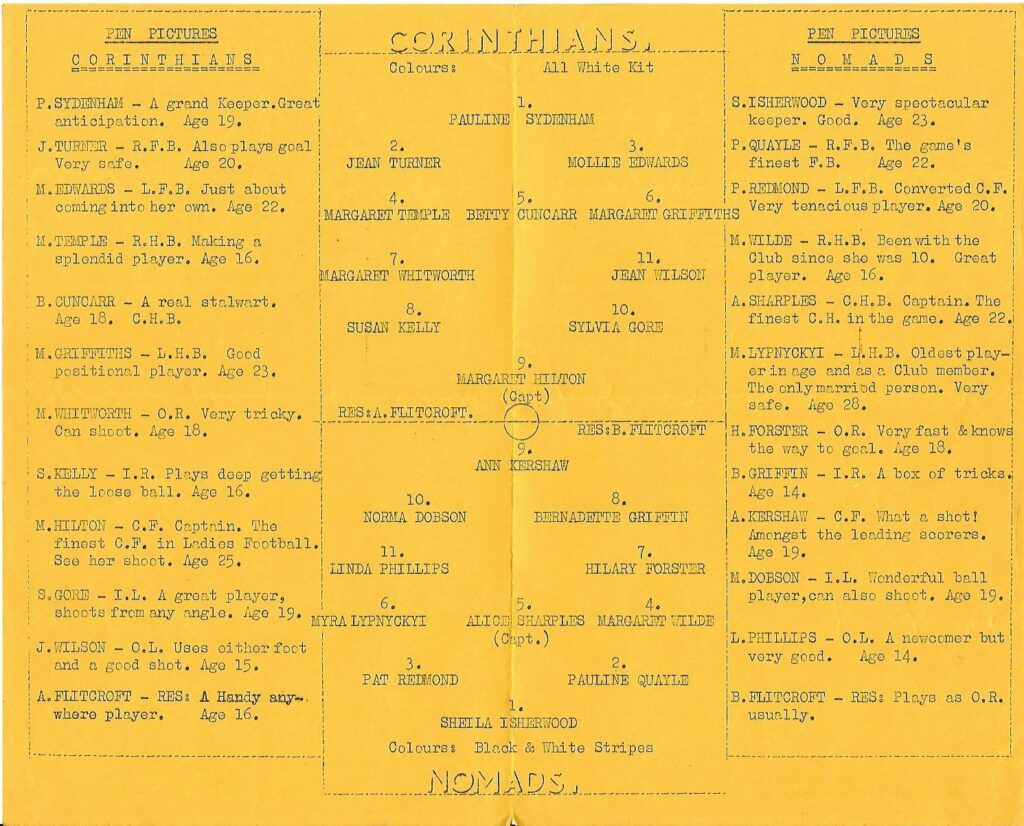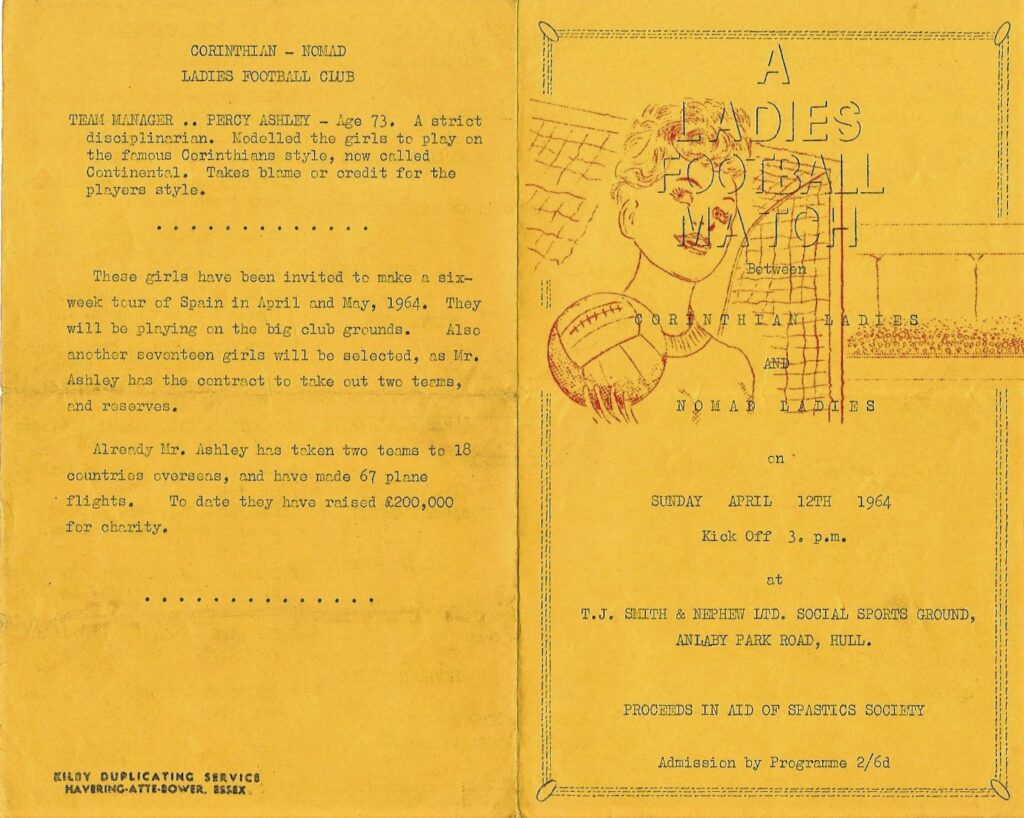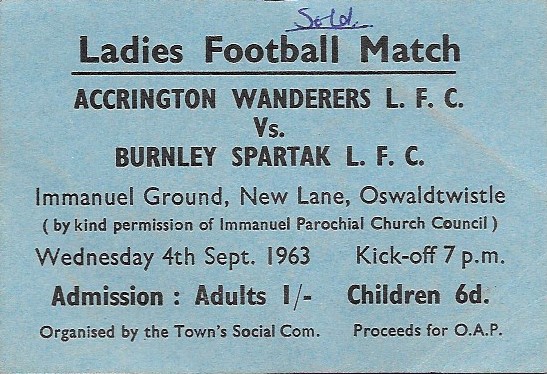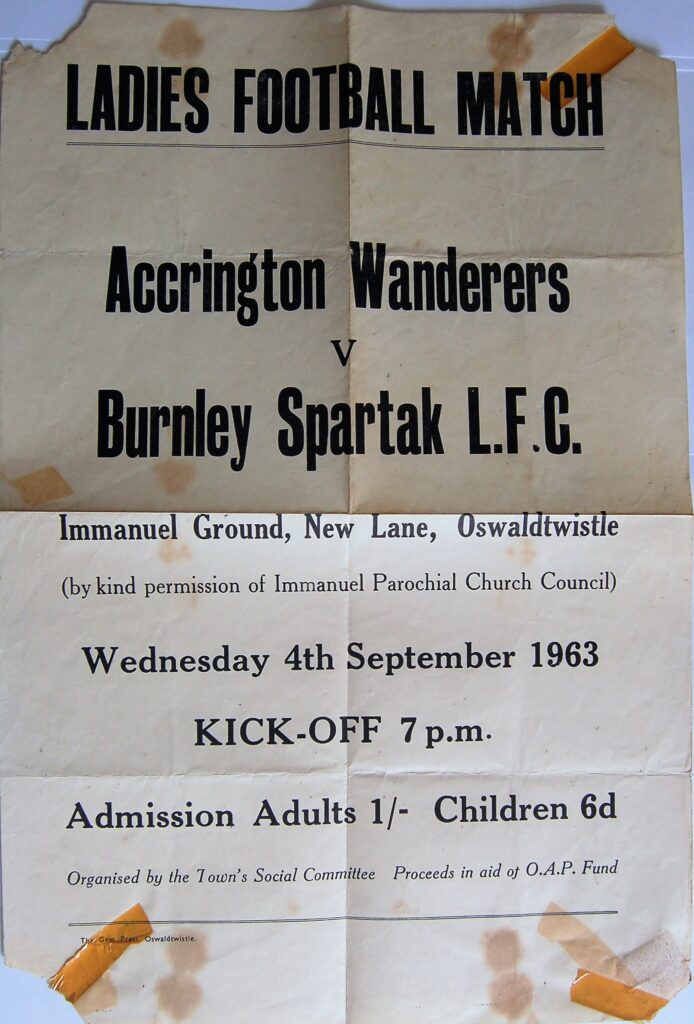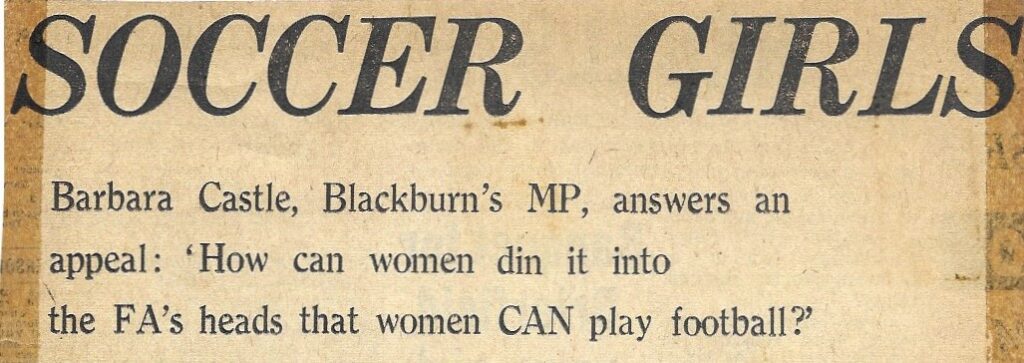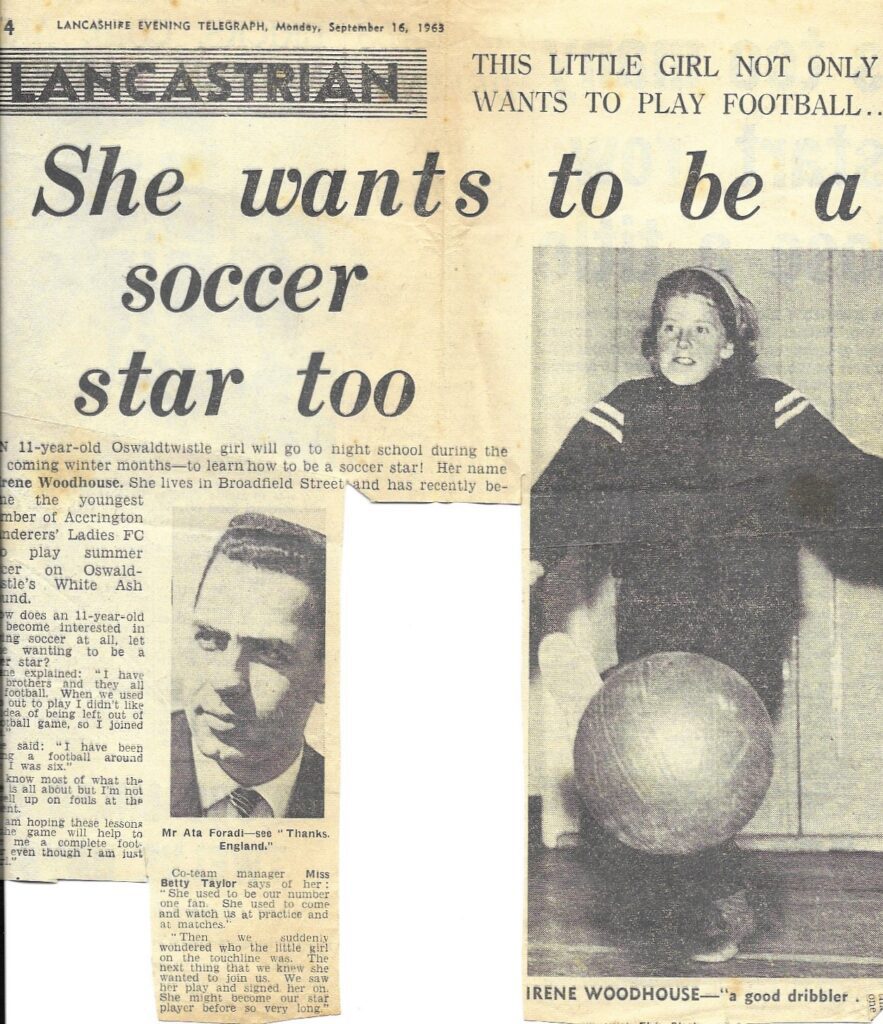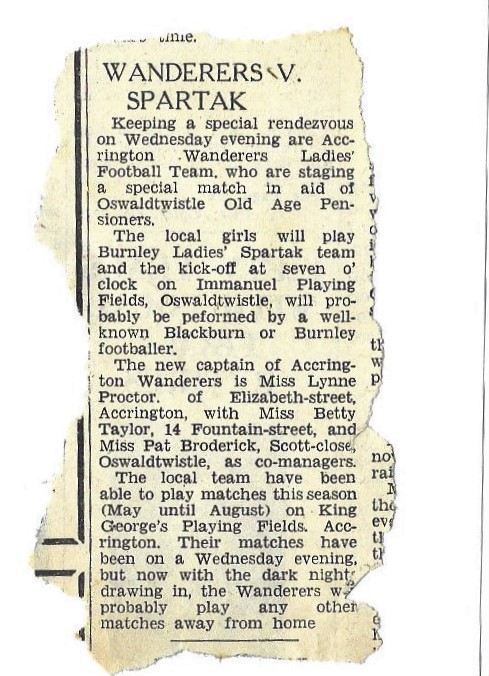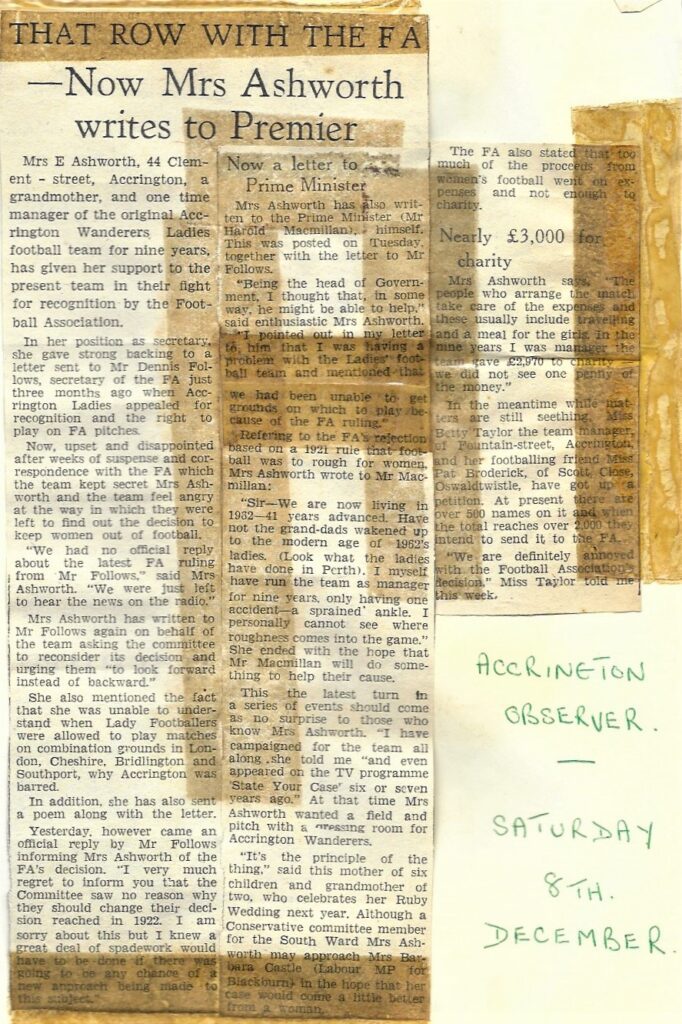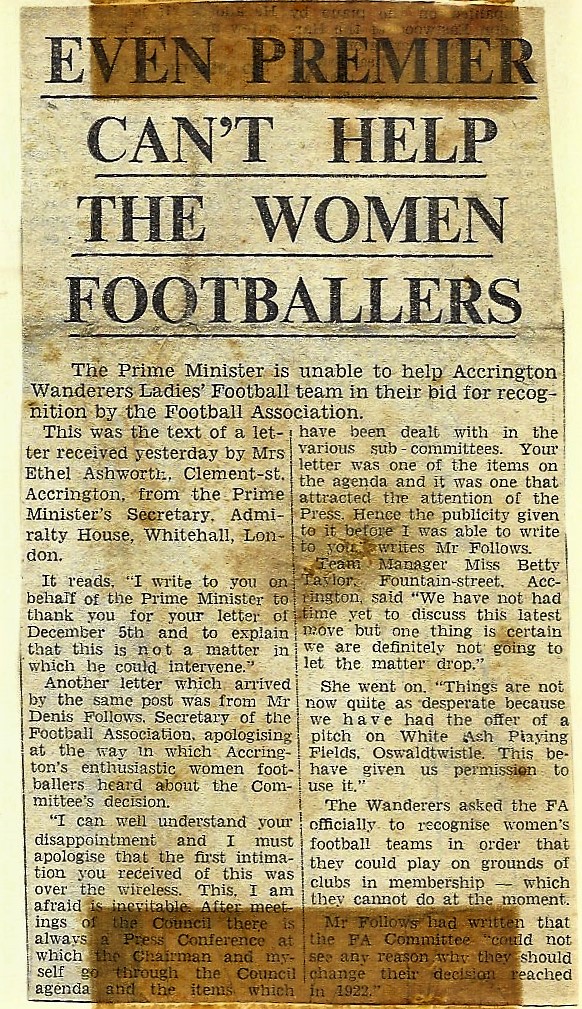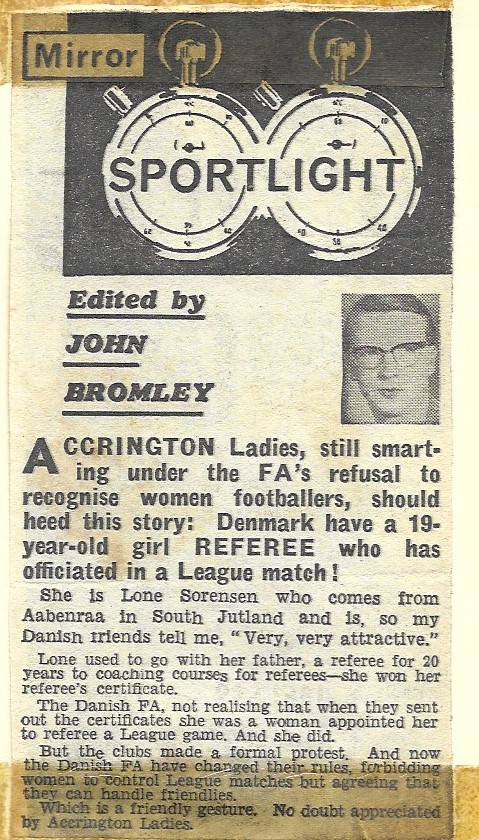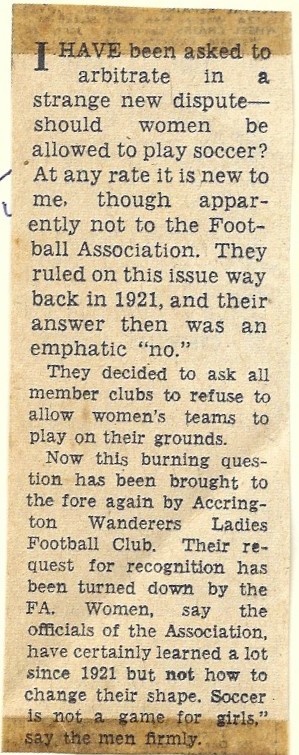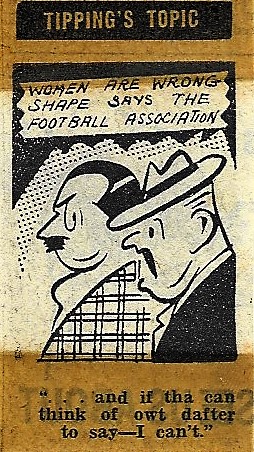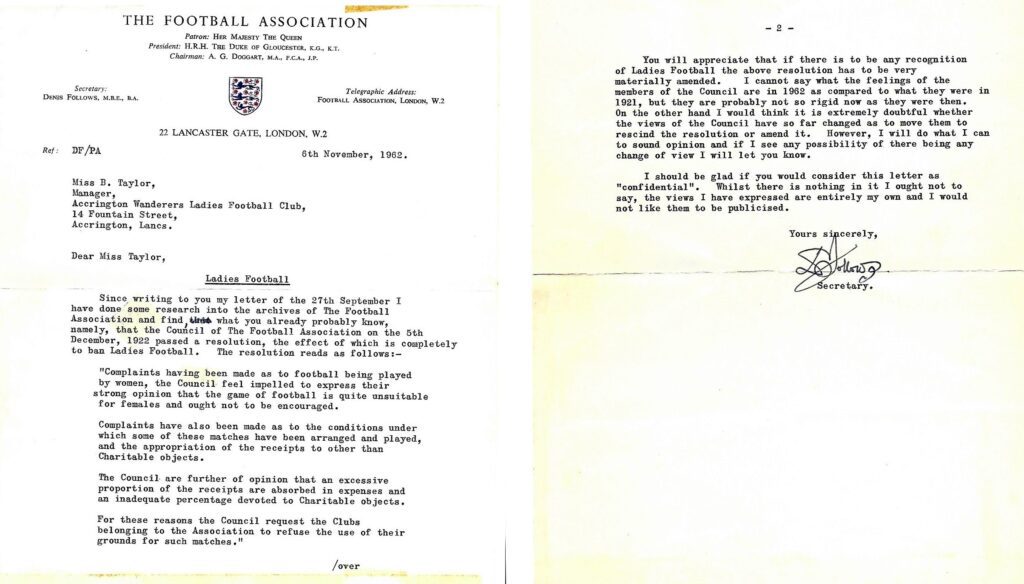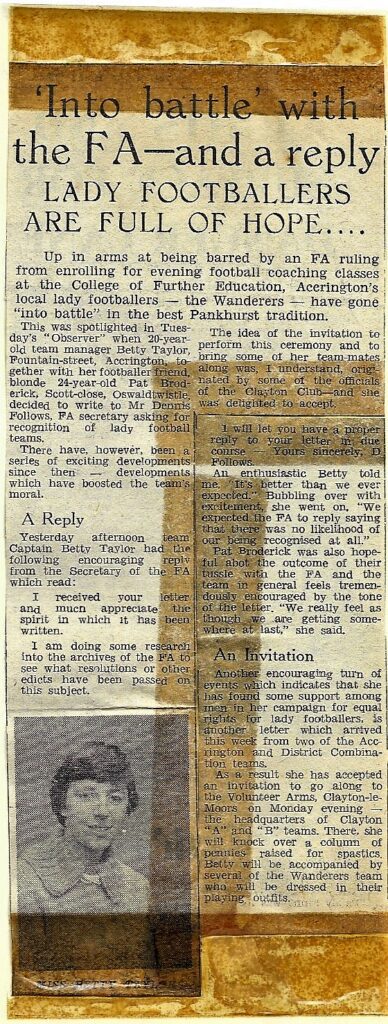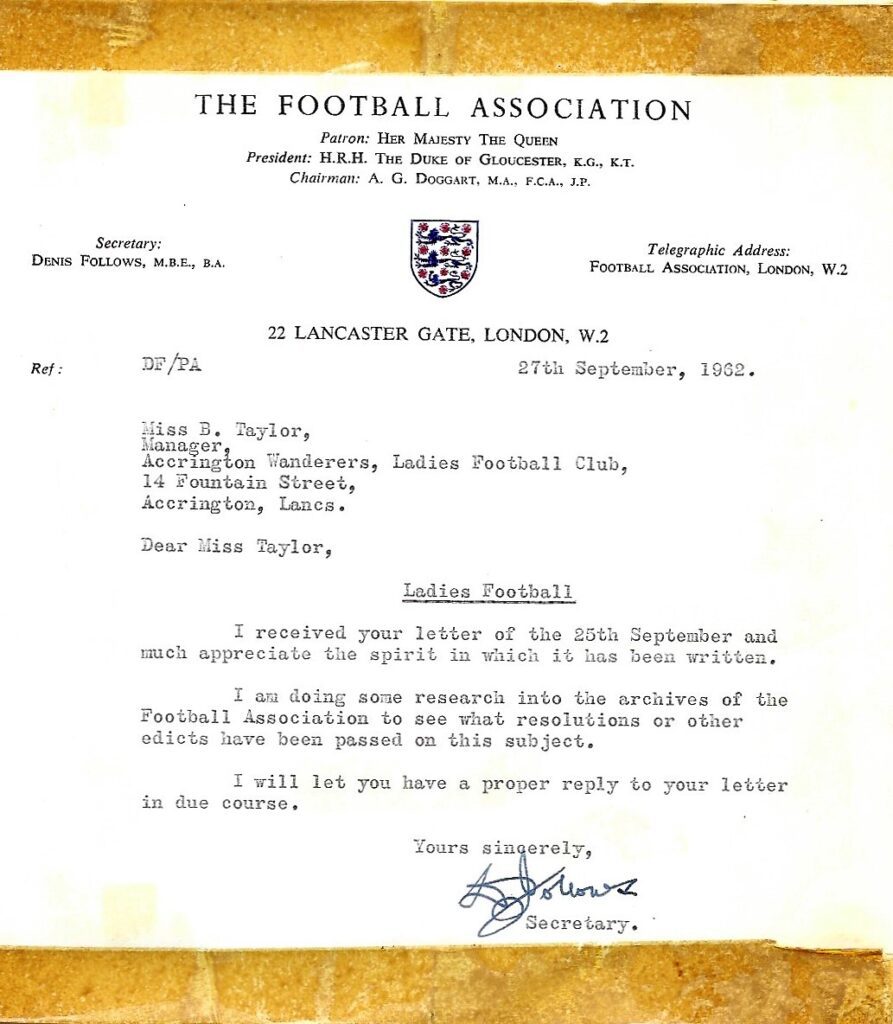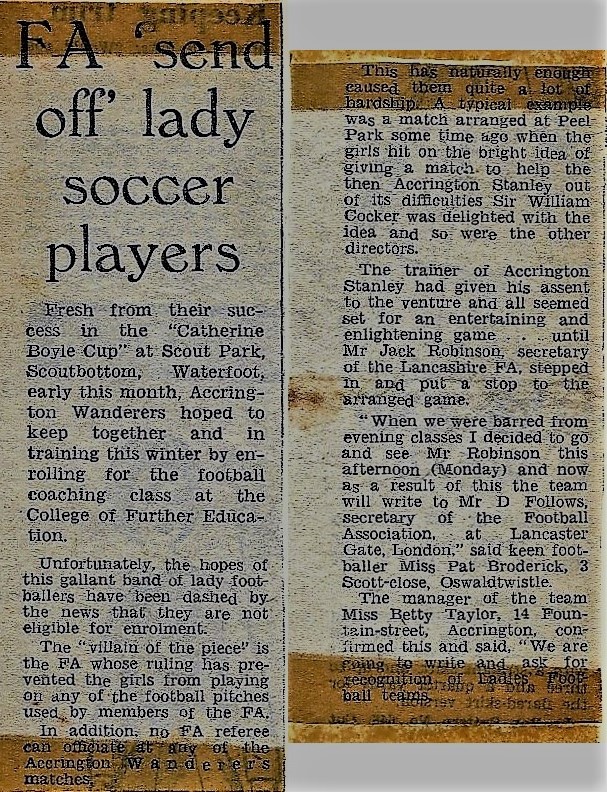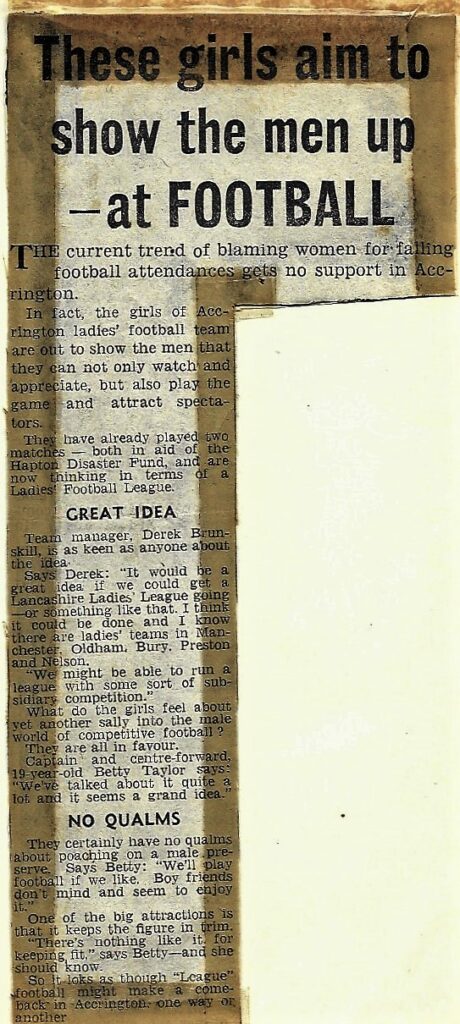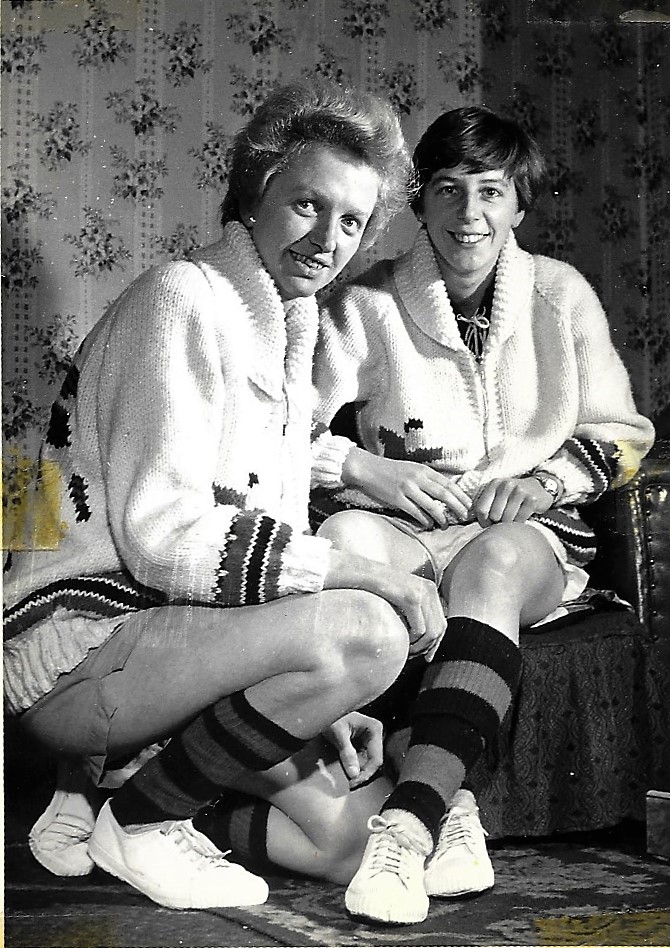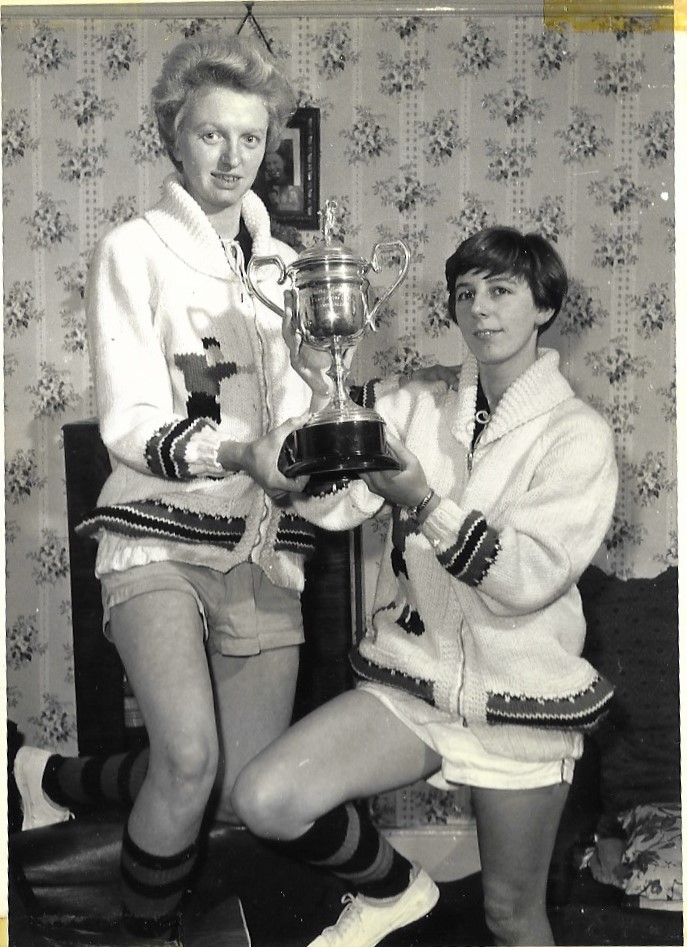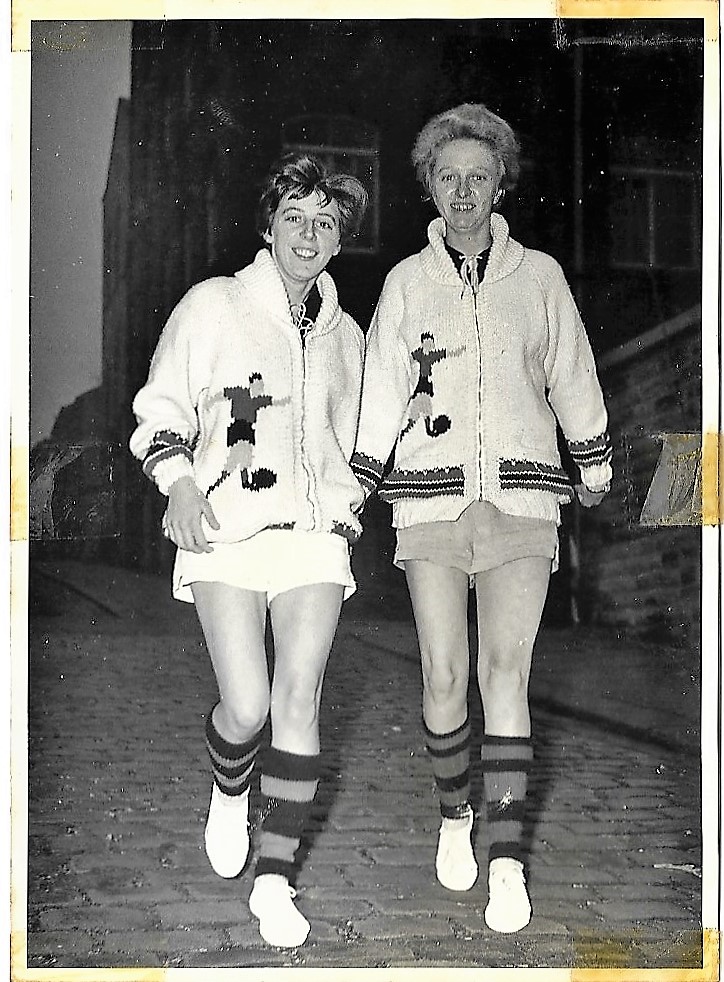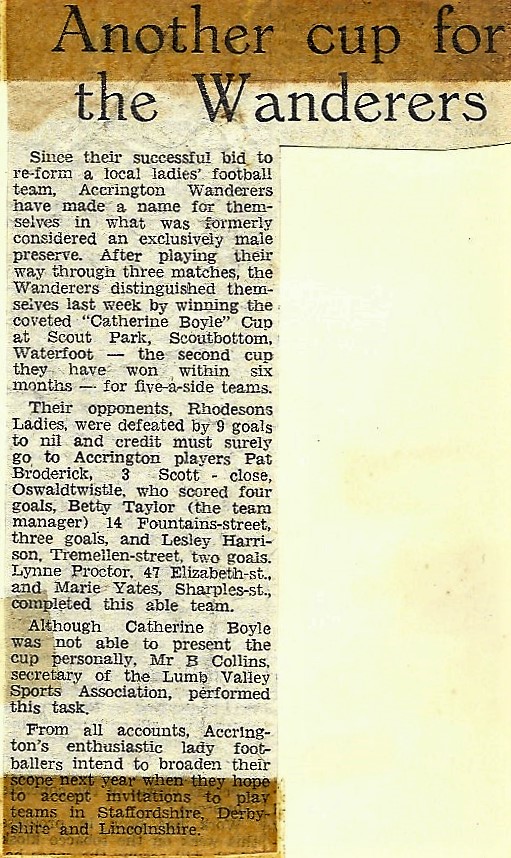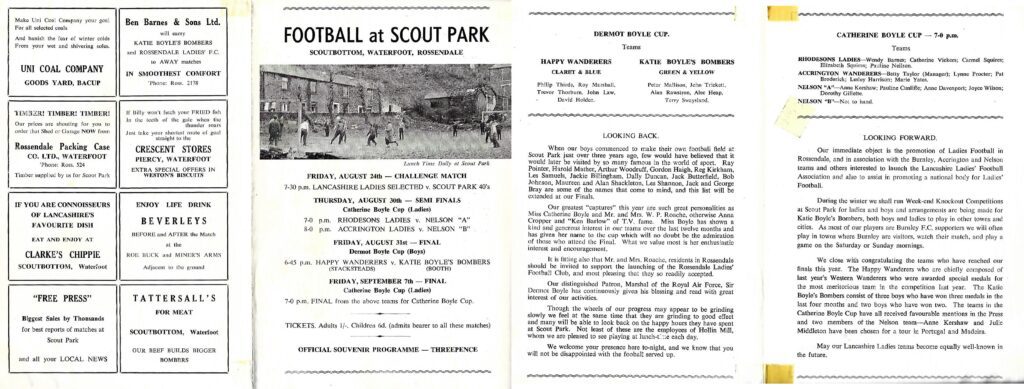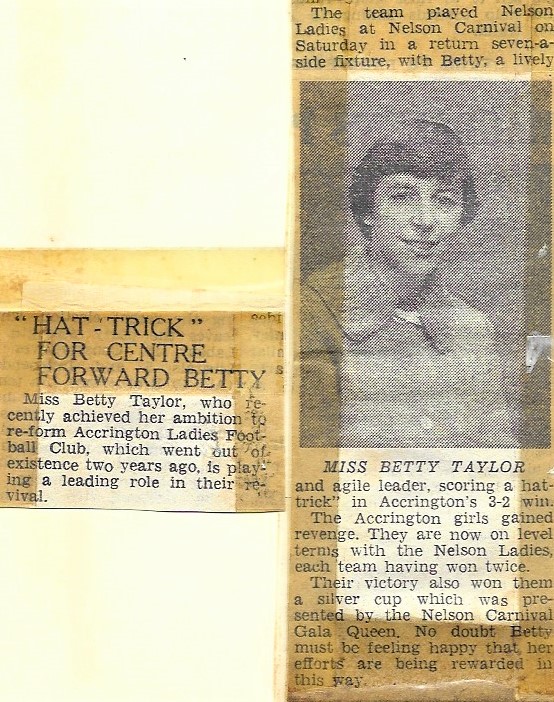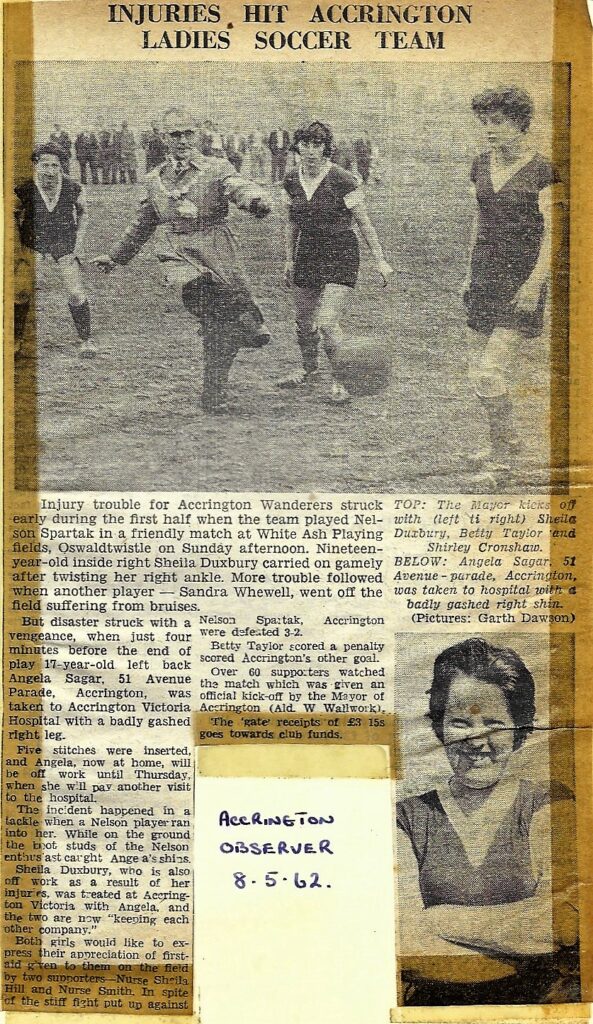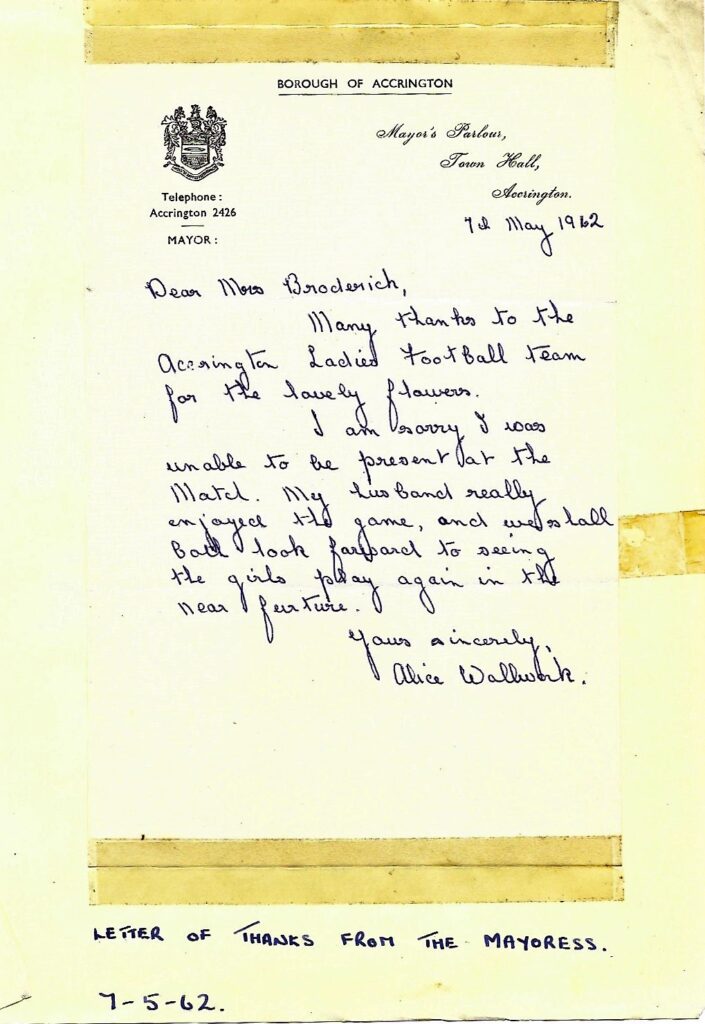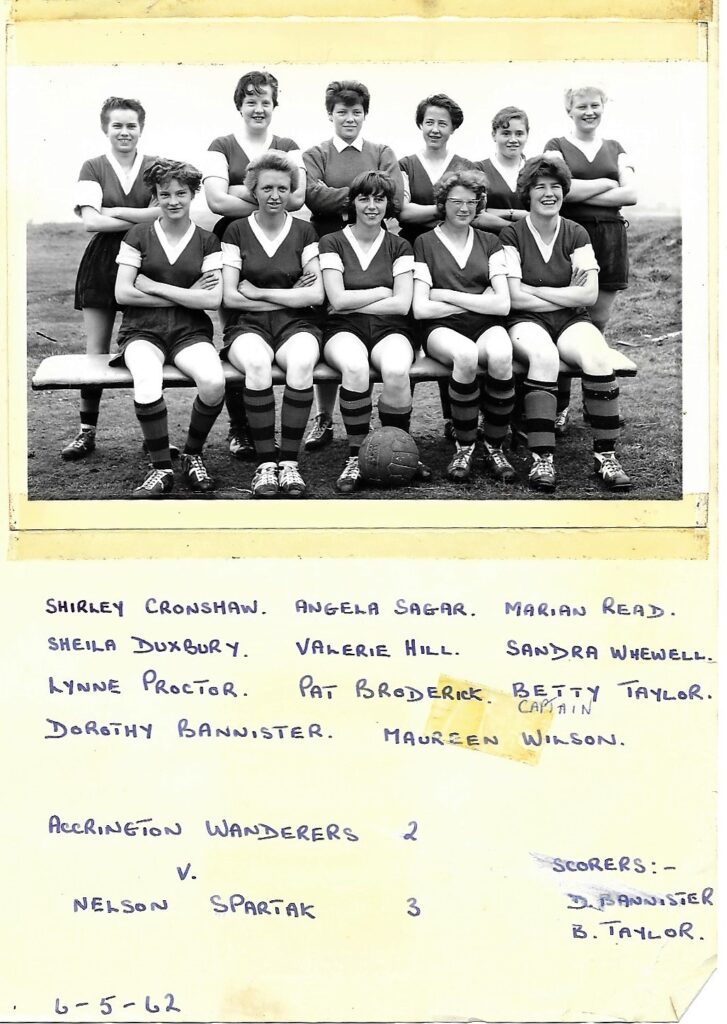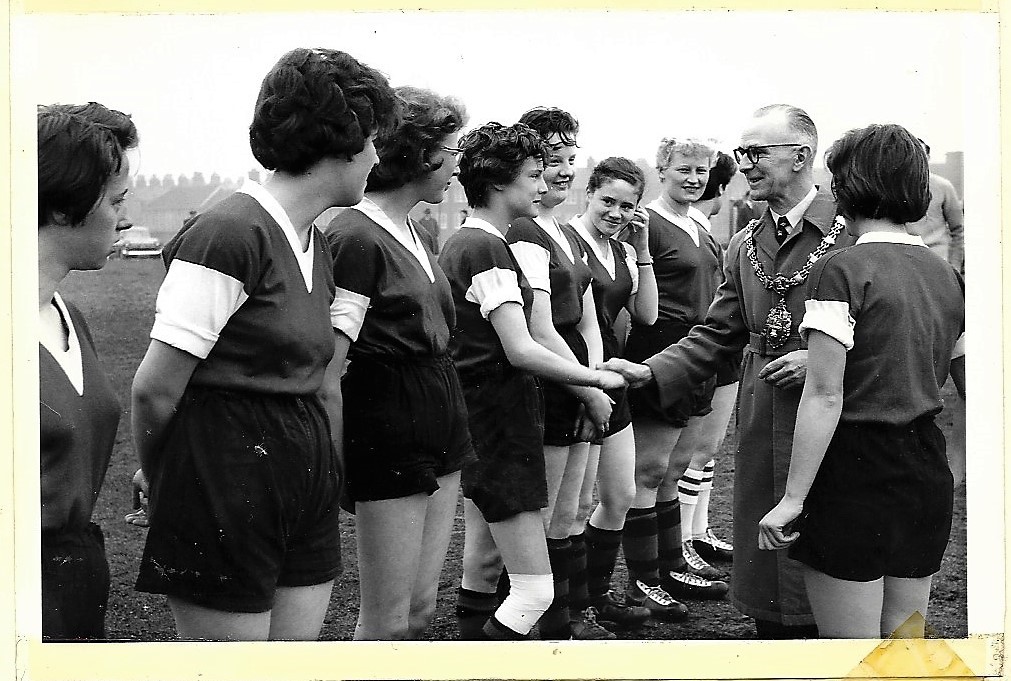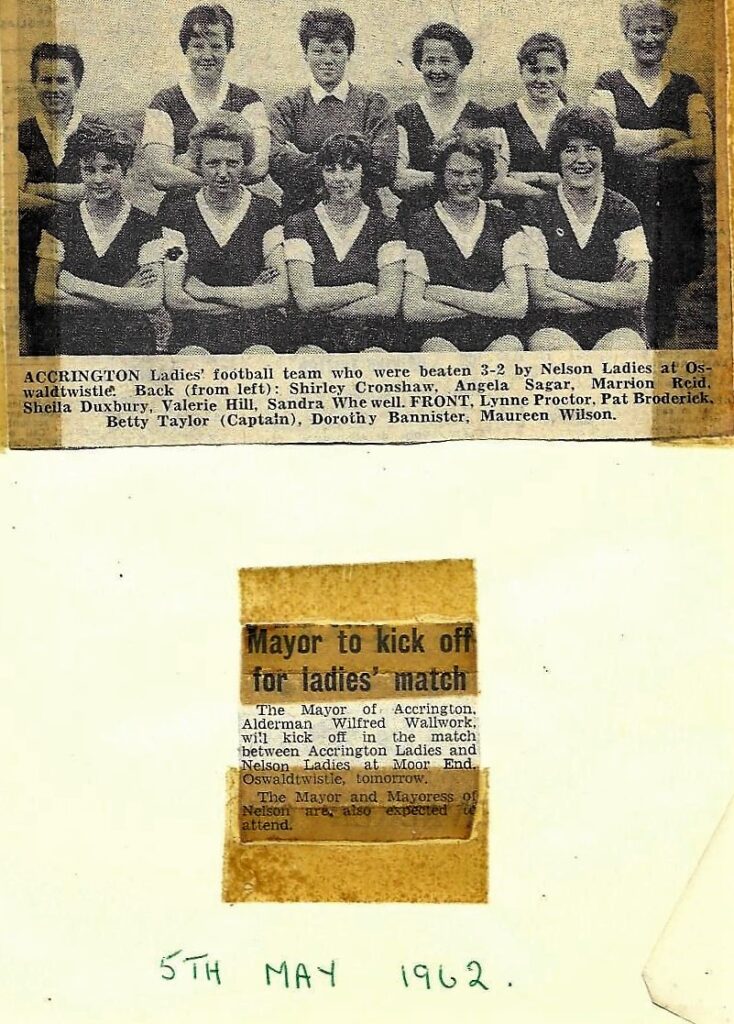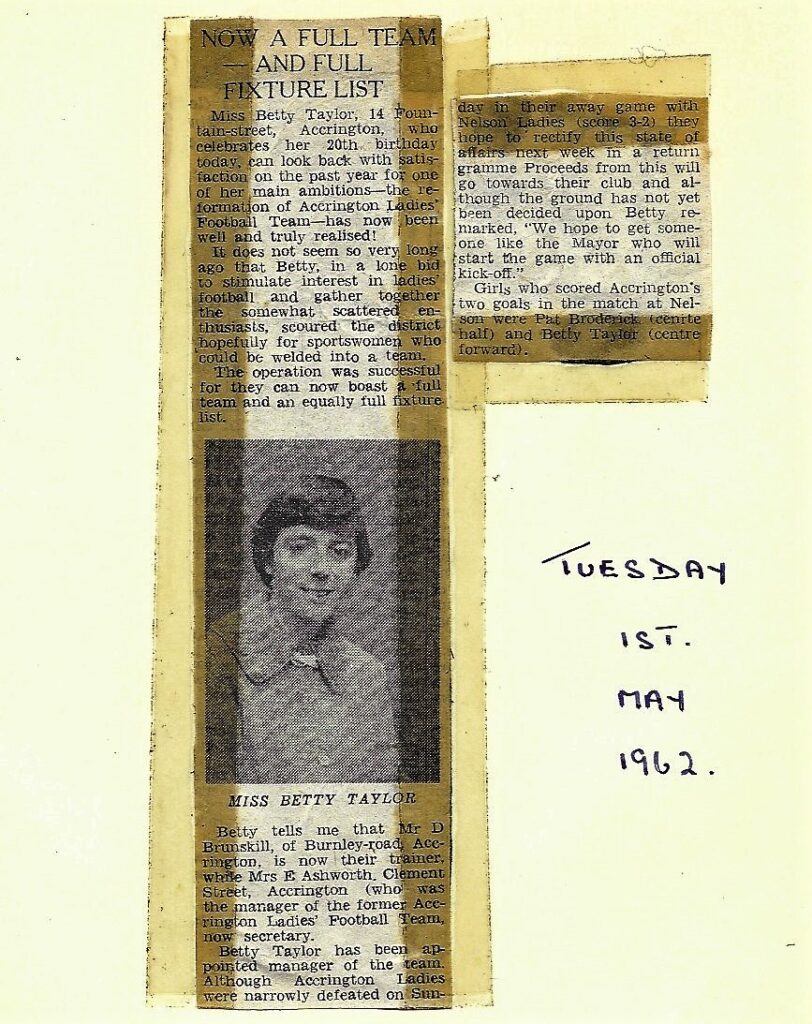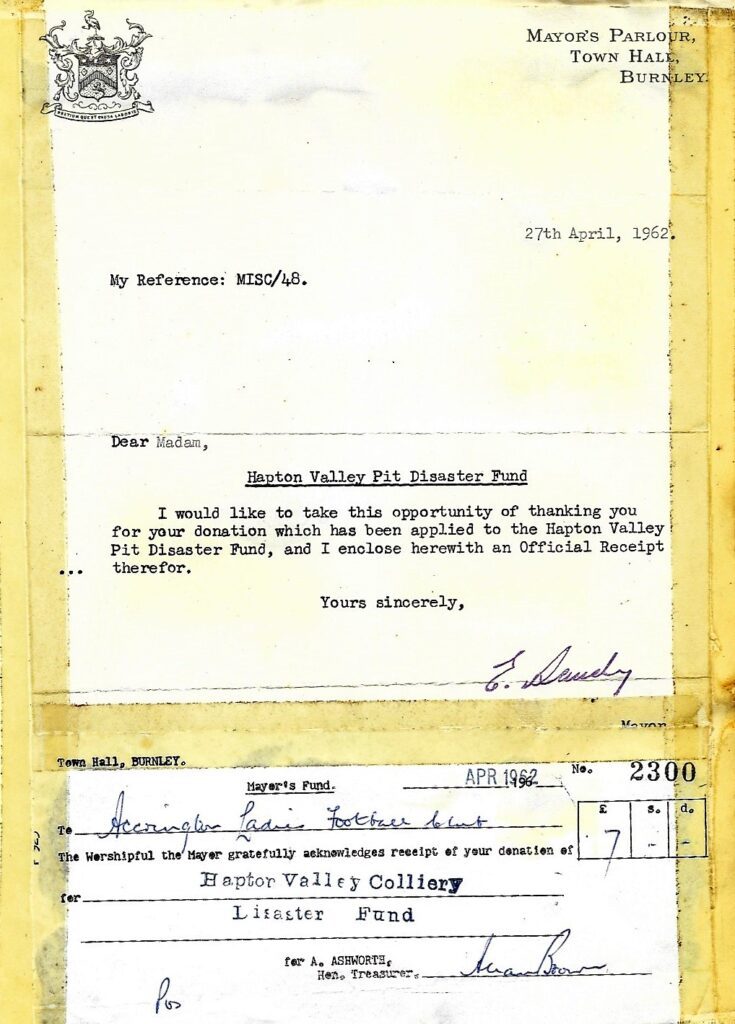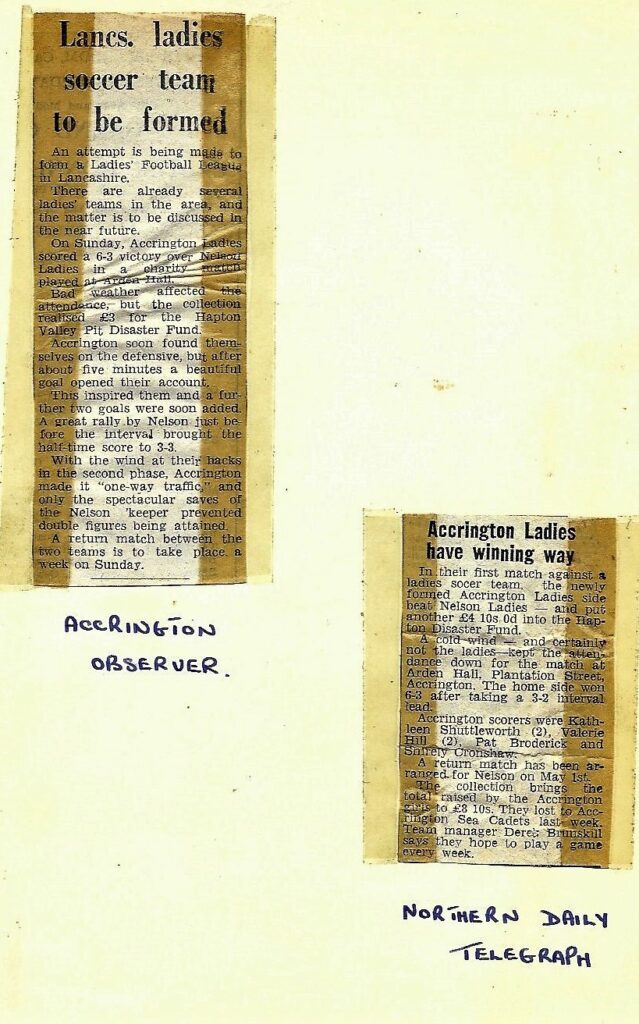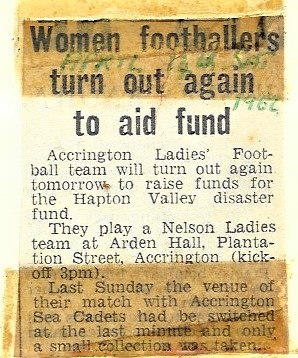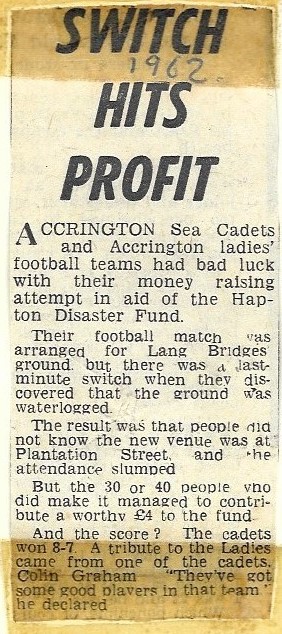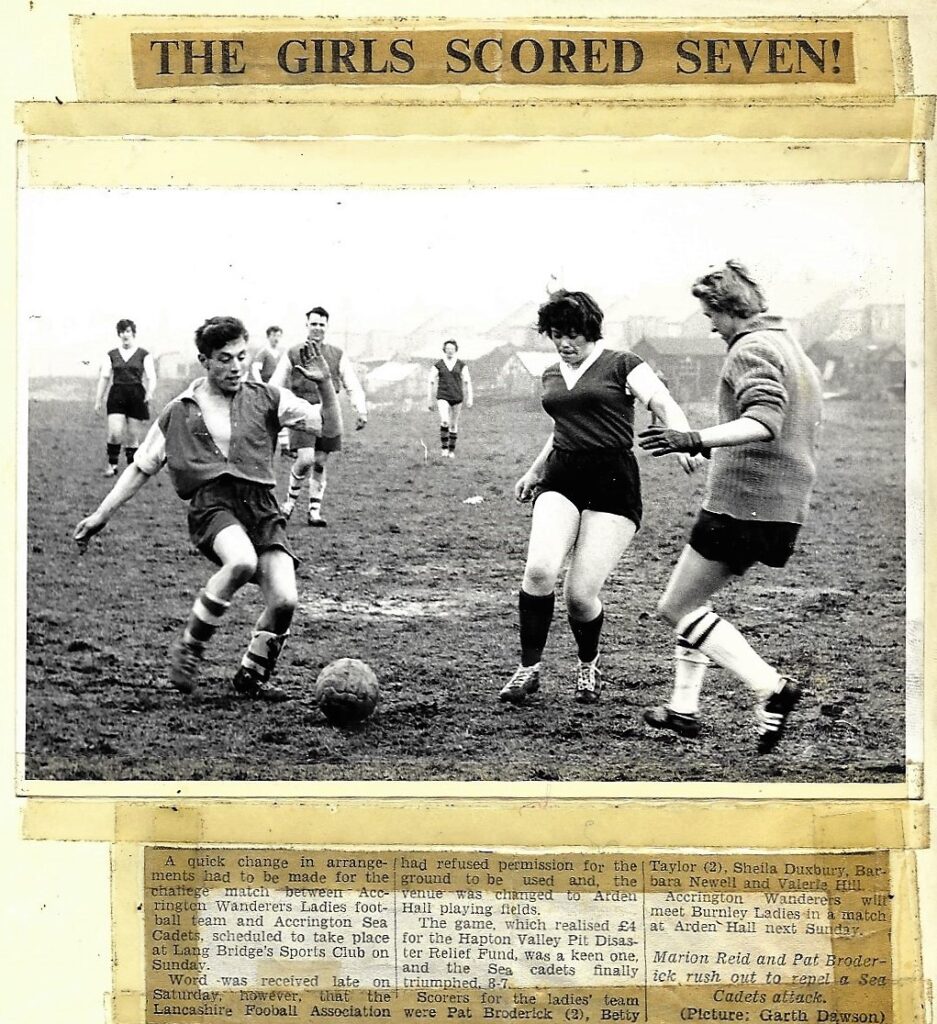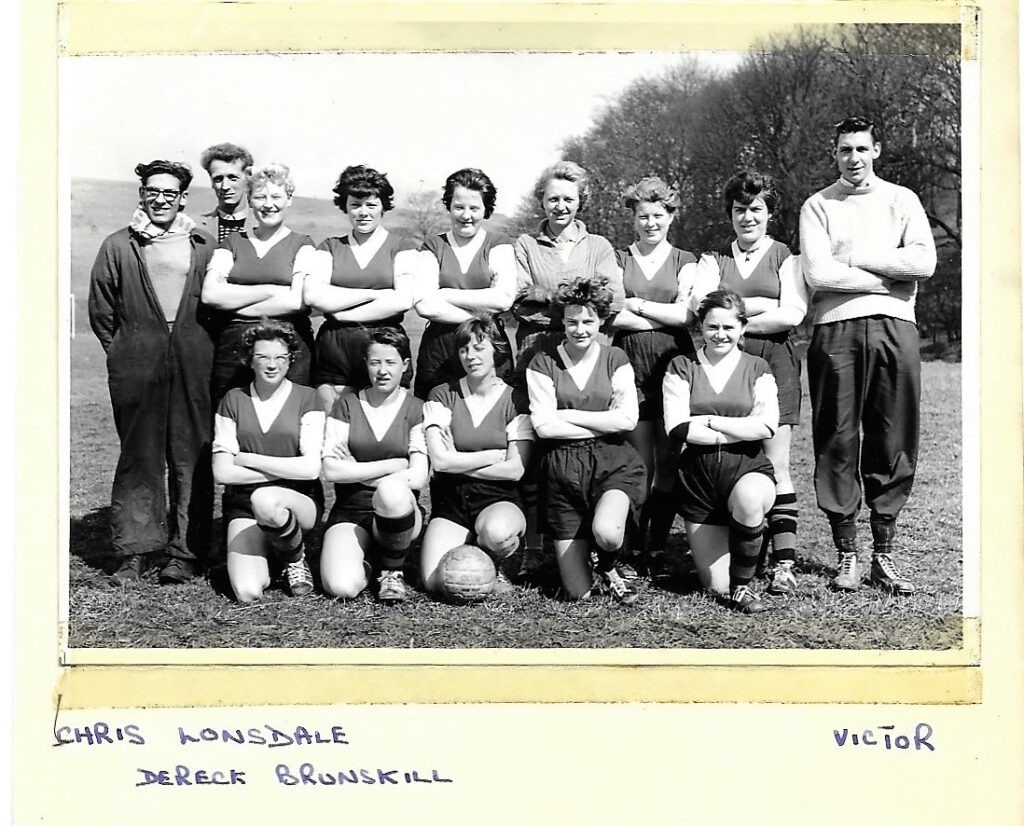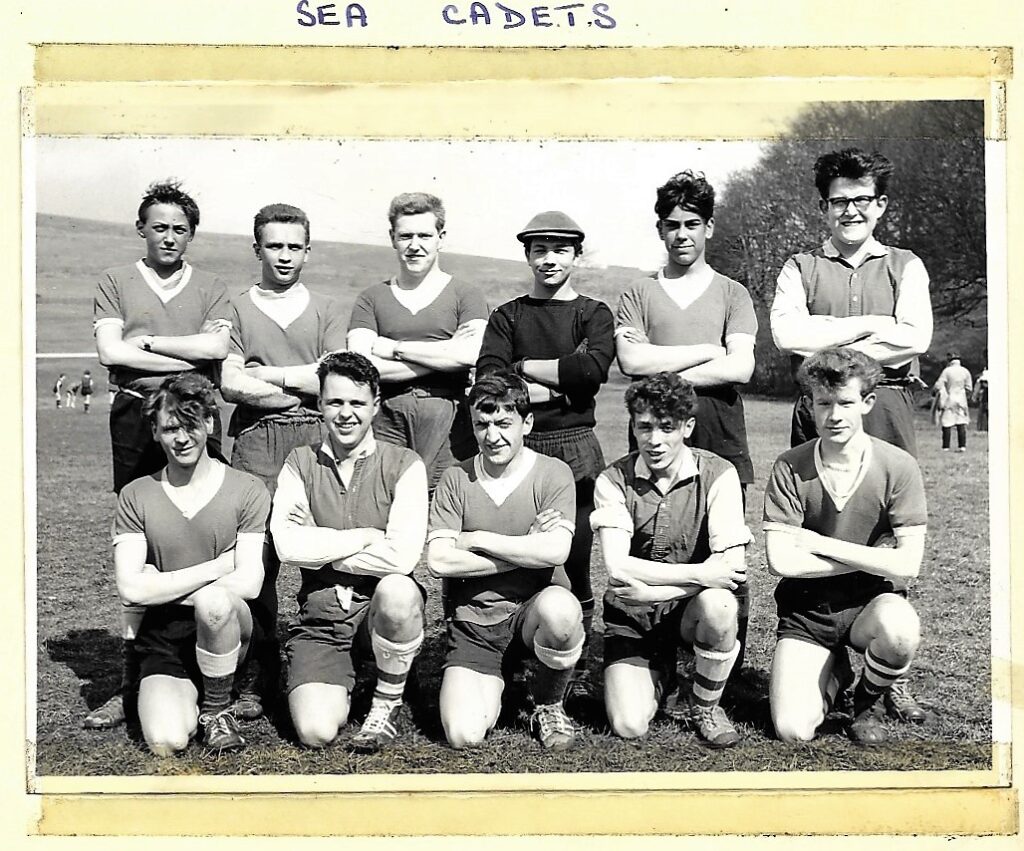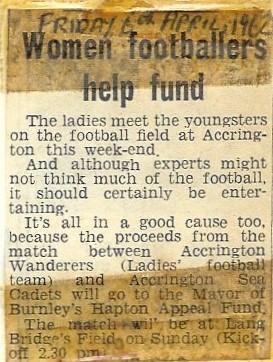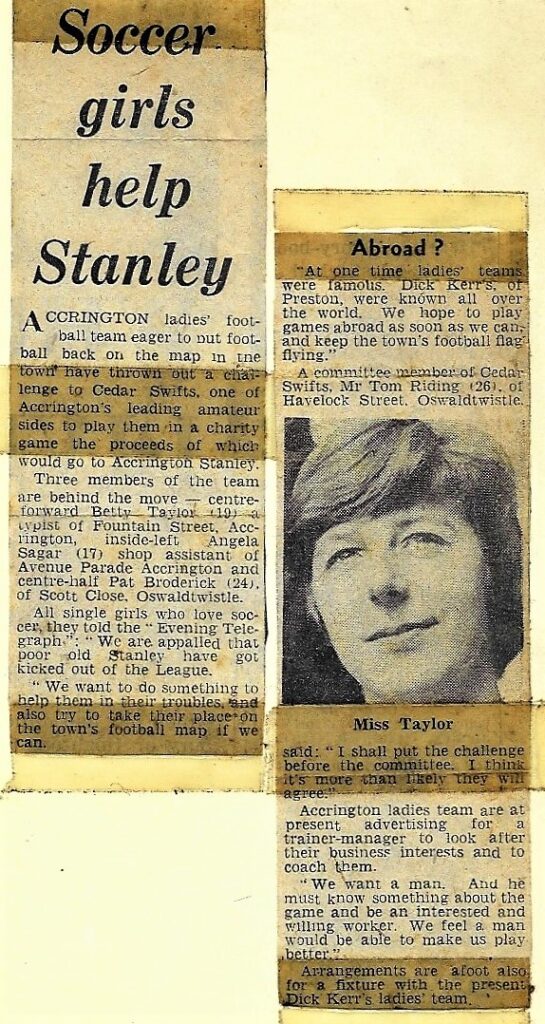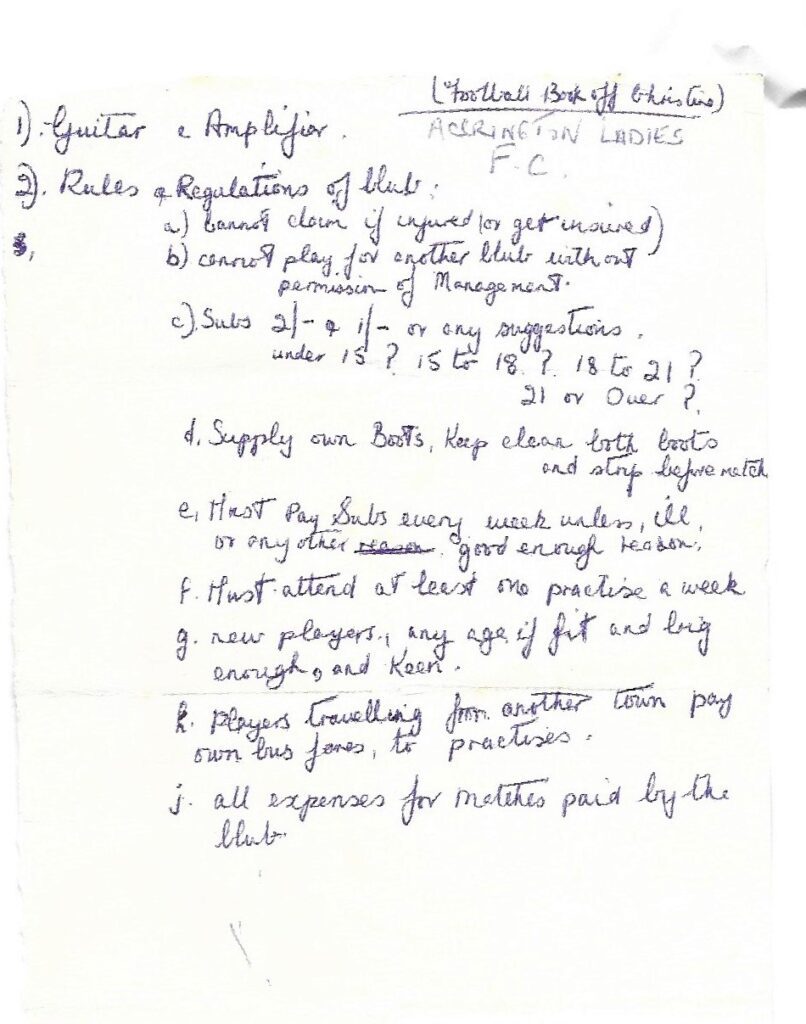Elizabeth “Betty” Taylor was born in 1942 in Clayton Le Moors, into a wrestling dynasty. One brother was Jack Taylor, a welterweight wrestler, scout, trainer and independent promoter. Brother Raymond wrestled professionally under the title “Young Raymond” or “Farmer Raymond”, while a third, Doug was a referee and office manager for Jack Taylor Promotions. While the brothers established themselves in the Midlands, Betty however, stayed in Accrington.
Describing herself as “always a tomboy”, Betty says that she showed early promise as a footballer while still at school. “The boys used to scream for me when they were picking the teams…all the lads were jealous.”
Betty went to work for the Accrington Bus Corporation on leaving school and began playing for Accrington Wanderers, the town’s ladies’ team. In 1962, when Margaret Ashworth, the team’s player manager, decided to retire from the team she had led since 1953, she suggested to Betty that she take over. Betty was unsure at first, describing herself as a shy 19 year old, but she soon rose to the challenge.
From the early 1880s up until 1922, women’s football teams had played all over Britain to crowds of sometimes tens of thousands. Individual players became well-known names (Nettie Honeyball, Lily Parr) and ladies’ teams such as Dick Kerr’s ladies of Preston had a huge following way beyond their local area. Dick Kerr’s team pioneered floodlit matches and in October 1920, they beat a French team in front of a 25,000 strong crowd. On Boxing Day in the same year, a record-breaking crowd of 53,000 turned out to watch them beat St. Helen’s Ladies. The following year, in 1921, the F.A. banned women from playing on FA member grounds. In the 50s and 60s, women’s football began to go through a resurgence, often through women’s workplace teams.
In 1962, Betty became Accrington Wanderers’ manager and set about trying to persuade the F.A. to change their minds. The ban meant it was a struggle to find somewhere to train as well as play. A local farmer let the team use his field and it was here that they drew up a set of rules for the club, including extending a welcome to players of any age, providing they were “fit, and big enough, and keen.”
Betty knew how to use the local press, keeping the club profile high with a mixed match against a Sea Cadets team, and arranging for the Mayor of Accrington to kick off at an early match with Nelson Ladies, where they raised £7 for the Hapton Colliery Disaster Fund. Unfortunately, a planned match at Peel Park to support the recently relegated Accrington Stanley, had to be cancelled when it was vetoed by the F.A., despite support from the former league club’s management.
Within three months of taking over the Wanderers, Betty had appointed a new trainer manager, Derek Brunskill and led the team at local events such as the Nelson Carnival and the Boyle Cup at Waterfoot. The club’s public image was smartened up with chunky track cardigans knitted by the club secretary, Pat Broderick – Betty has hers to this day. The team received invitations to play women’s teams from Cheshire, Staffordshire, Derbyshire and Lincolnshire.
The Wanderers’ playing season was a short one – May to August so as not to clash with the men’s games. The team were beginning to make themselves known thanks to Betty’s management skills and with the winter approaching, the plan was to improve their skills with football coaching sessions run by the F.A. at Accrington College of Further Education. That’s when they discovered that the F.A.’s ban didn’t just apply to using their grounds – they were barred from attending F.A. coaching sessions too.
Betty was quick to write to the F.A. and ask them to reconsider the ban. As she put it, surely the F.A. would “catch up with the times. Women are invading all kinds of strongholds, and football won’t hold out for long.” But the F.A. weren’t going to give in that easily. While the secretary, Denis Follows, wasn’t unsympathetic, he thought it “extremely unlikely that the views of the Council have so far changed as to cause them to rescind the resolution” passed 40 years earlier. Betty and her supporters continued to plead their cause, appealing to the Prime Minister, Harold McMillan, to intervene. Barbara Castle, M.P. for Blackburn, was asked how they could “din it into the FA.’s heads” that women could play football. Regional and national press picked up the story. An F.A. spokesman’s comment that women were “the wrong shape” for football was lampooned in the Northern Daily Telegraph and the story was covered sympathetically in the Daily Mirror and Daily Mail.
In 1963 Accrington Wanderers were feeling the strain of lacking a place to call home. “If we can’t get a pitch, we shall probably just pack up and play cricket for Baxenden”, said Betty ahead of their request to Accrington Council to allow them to play regularly on a local ground. Finally, in June, the council agreed that they could use King George’s fields and in September that year, the Wanderers took on their youngest recruit – 11 year old Irene Woodhouse, described as “a good dribbler.” The team attended judo classes during the winter to keep up their fitness and skills.
The 1964 season began with the realisation of a long-held ambition – to play at Peel Park. The field had been bought by a private owner, Sydney Littler, and so the F.A. no longer held sway there. On 17th May 1964, Whit Sunday, Betty led the Wanderers out onto Peel Park, which was “like Wembley to us.”



